Exploring Trinity Church and St. Paul’s Chapel in New York City
Our family is fortunate to live a short drive from New York City and we frequently enjoy driving into Manhattan to explore historical sites and museums. On a recent visit, we enjoyed the morning exploring the grounds of the famous Trinity Church and near by St. Paul’s Chapel in the Financial District of Lower Manhattan.
In the late 17th century, a group of Anglicans wanted to form their won parish in the colony of New York. In 1697, Trinity Church received its charter from King William III, helping to establish its incorporation and establish the rules of the parish. The land to build the church, now Fulton Street to north Christopher Street and Greenwich Street east to Broadway, was leased by Queen Anne in the early 1700s. The current church, built in 1846 as the tallest building in America at the time (the steeple is 281 feet tall!), is actually the third church on the property (the original 1698 church burned in the Great Fire of New York in 1776 and the second church, built in 1790, was destroyed by snow in the late 1830s). The church is located on Wall Street facing west towards the Hudson River.
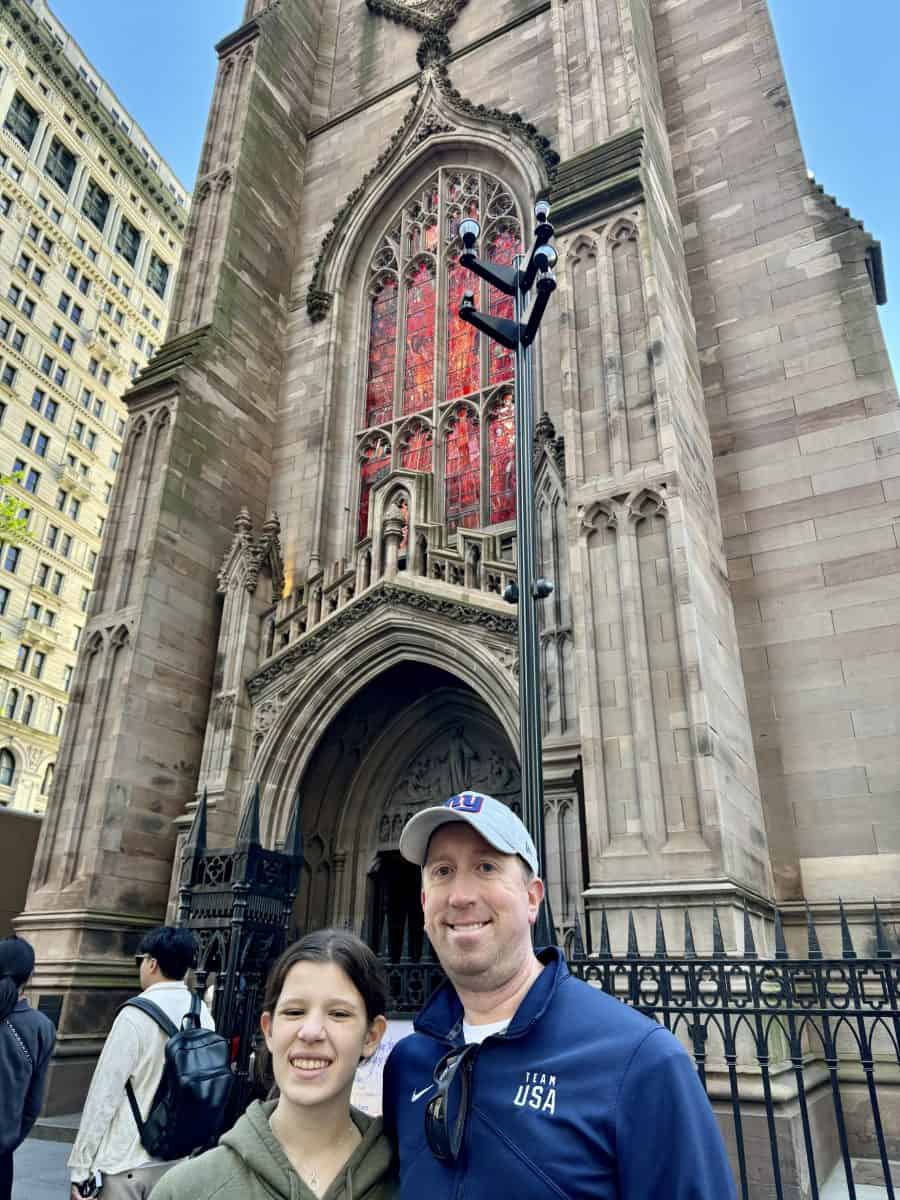
Trinity Church increased in size rapidly as the city grew, and St. Paul’s Chapel, just up the street at the corner of Broadway and Vesey Street, opened in 1766. St. Paul’s Chapel survived the Great Fire of 1776 thanks to the work of firemen. St. Paul’s was the main home of Trinity Church until the second church was rebuilt in 1790; George Washington attended services at St. Paul’s Chapel after taking the oath of office to become the nation’s first president. St. Paul’s Chapel is one of the oldest public buildings in Manhattan still in use today. Located only 100 yards from the World Trade Center, St. Paul’s Chapel was literally at the epicenter and home to the rescue crews and volunteers for months after the terrorist attacks of September 11, 2001.
Both Trinity Church and St. Paul’s Chapel welcome visitors every day of year for worship services, outreach programs, and community engagement. Visitors are welcome to explore the grounds and learn about the church’s support of the community.
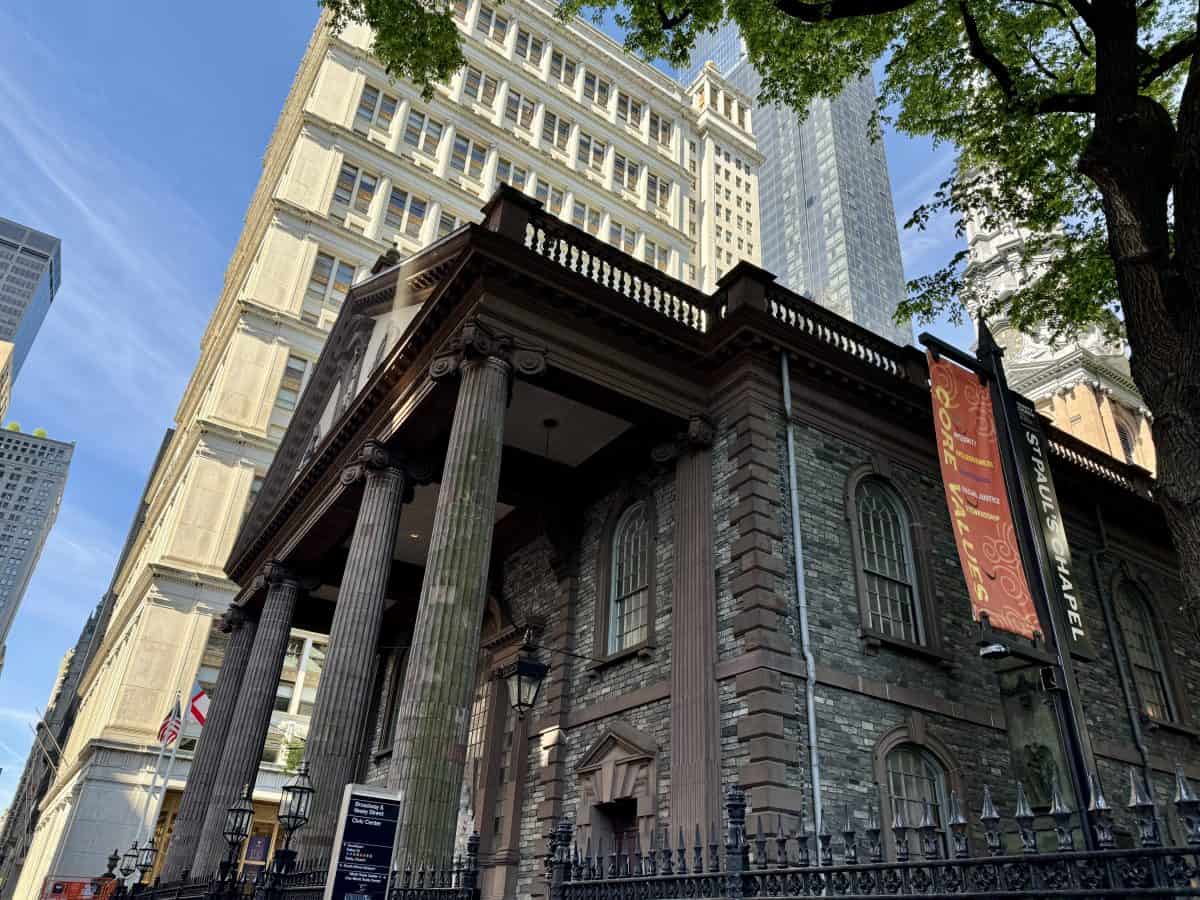
Travel Tips:
Highlights of Exploring Trinity Church:
- The altar of the Trinity Church. Note the Astor Reredos, a marble carved screen behind the altar, given by John Jacob Astor III in memory of his father. The sanctuary of the church is a National Historic Landmark.
- The Chapel of All Saints (to the right of the main altar), which has about 40 seats and a smaller altar.
- The South Side of the Churchyard, which includes the tomb of Alexander Hamilton (First Secretary of the Treasury) and his wife Elizabeth Schuyler Hamilton, and their daughter Angelica Schuyler Church. Toss a coin on Hamilton’s tomb for good luck.
- The North Side of the Churchyard, which includes the Soldiers’ Monument of 1852 (honoring Revolutionary War soldiers held in captivity and thought to be buried on church grounds)
- The Churchyard also includes a statue of Honorable John Watts (a member of the Third US Congress), and the tomb of William Bradford (printer).
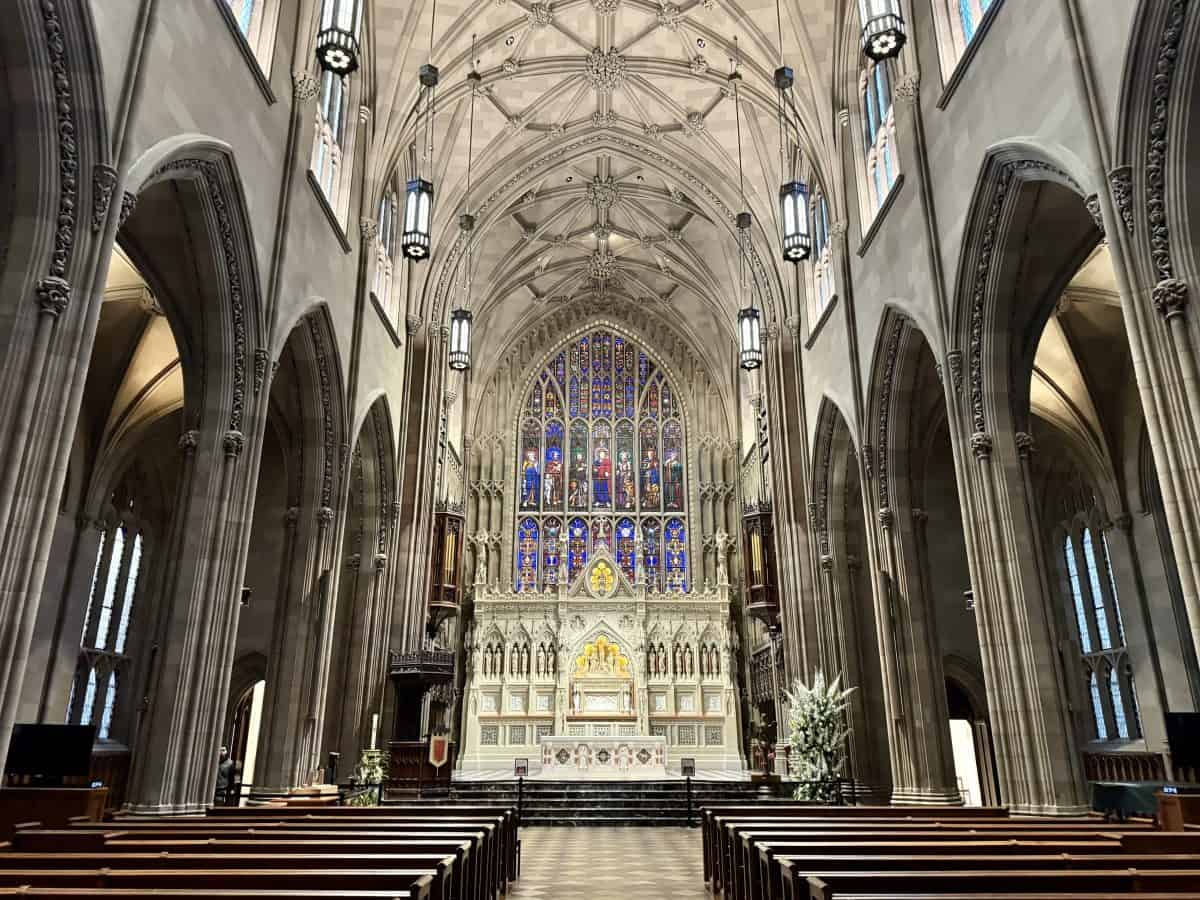
Would you like to save this?
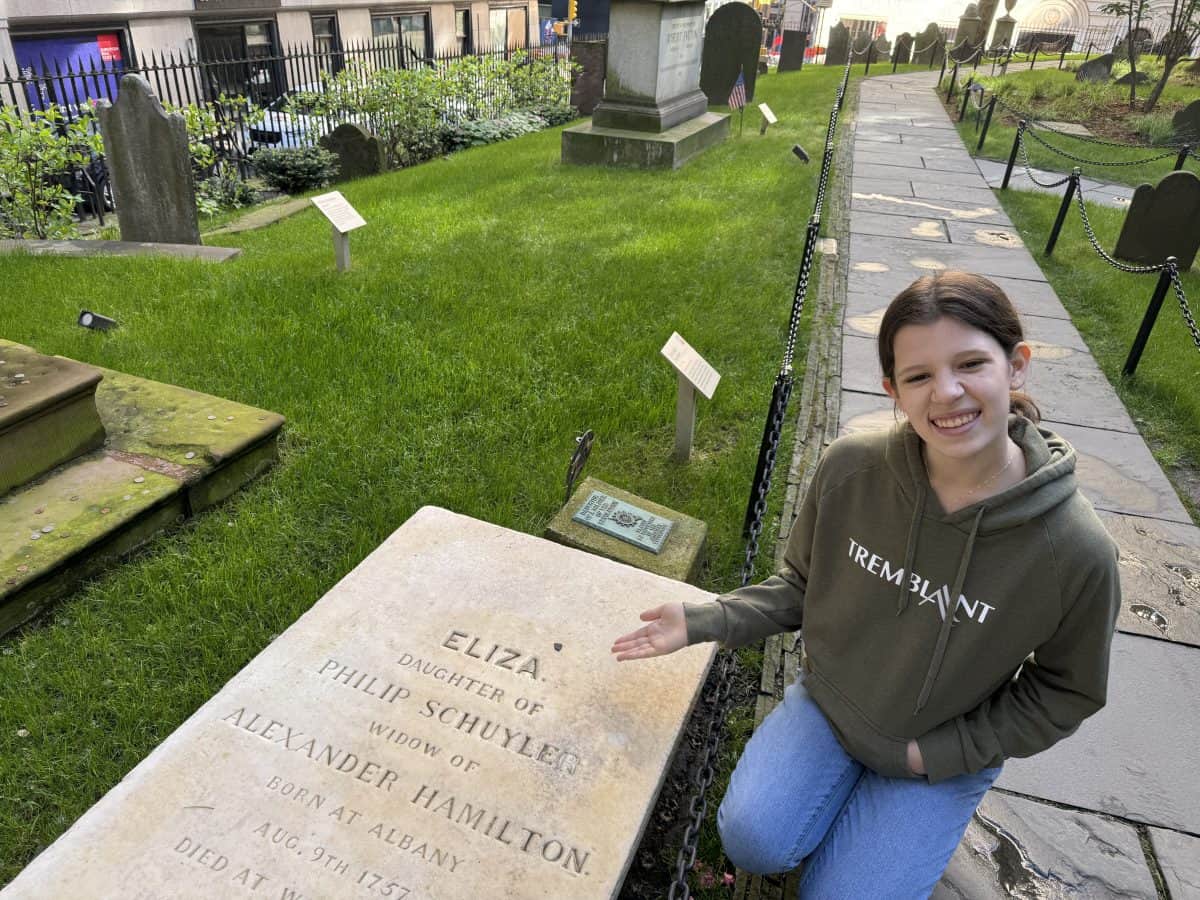
Highlights of Exploring St. Paul’s Chapel:
- The Bell of Hope, which was given by the Archbishop of Canterbury to the people of New York City on September 11, 2002, and is rung every year during September 11th commemorations.
- The Vestment of Unity, made from patches from fire, police, and rescue workers departments from around the world, donated after the September 1th tragedy. St. Paul’s Chapel is located feet from the World Trade Center and was used 24/7 for over nine months after the attacks to house, feed, and support the greater community.
- Visit the memorial, located on the east porch facing Broadway, honoring Brigadier General Richard Montgomery, the first Revolutionary War officer killed in 1775 while fighting in Quebec, who is buried under the monument.
- The seven foot, 500 pound statue of St. Paul, originally displayed outside, was restored in 2016 and brought inside to be preserved. A resin replica now stands in the outdoor space, facing Broadway.
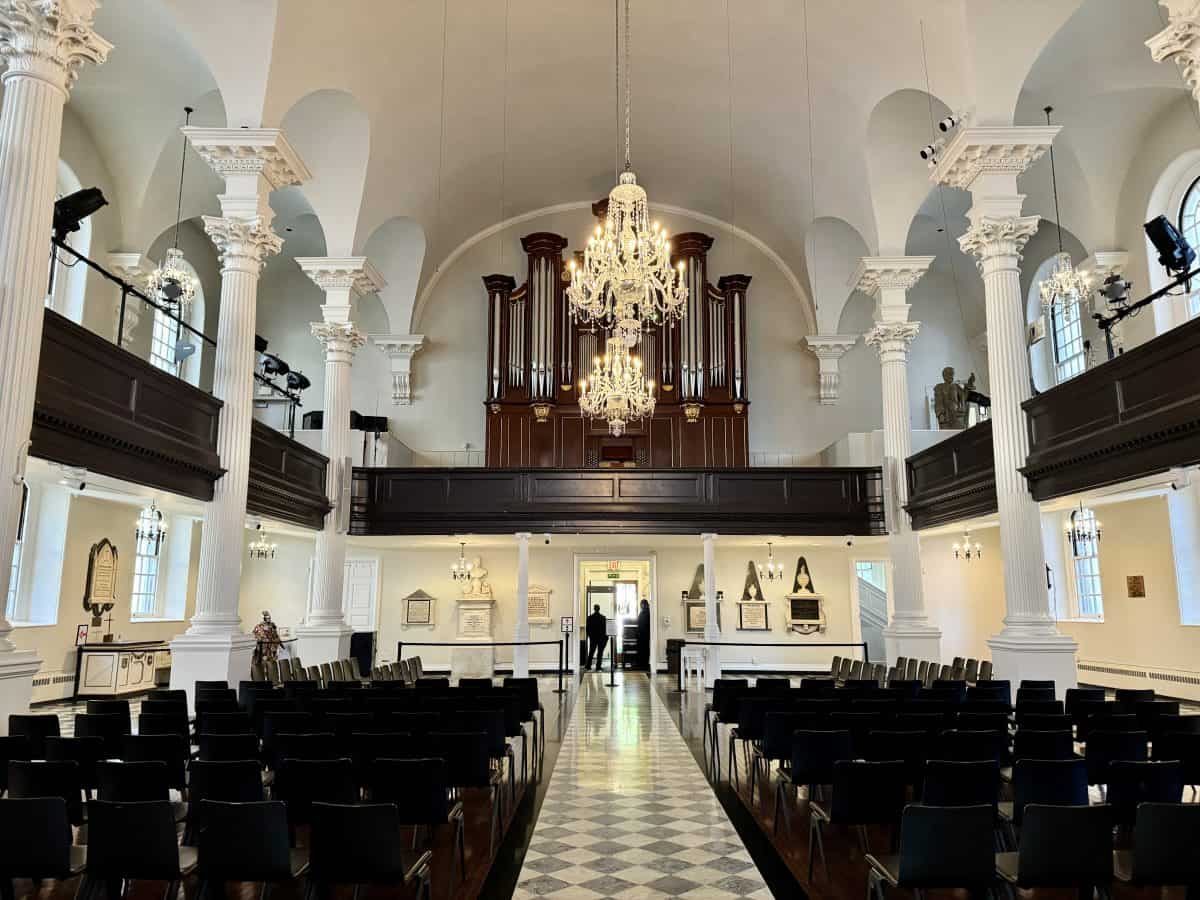
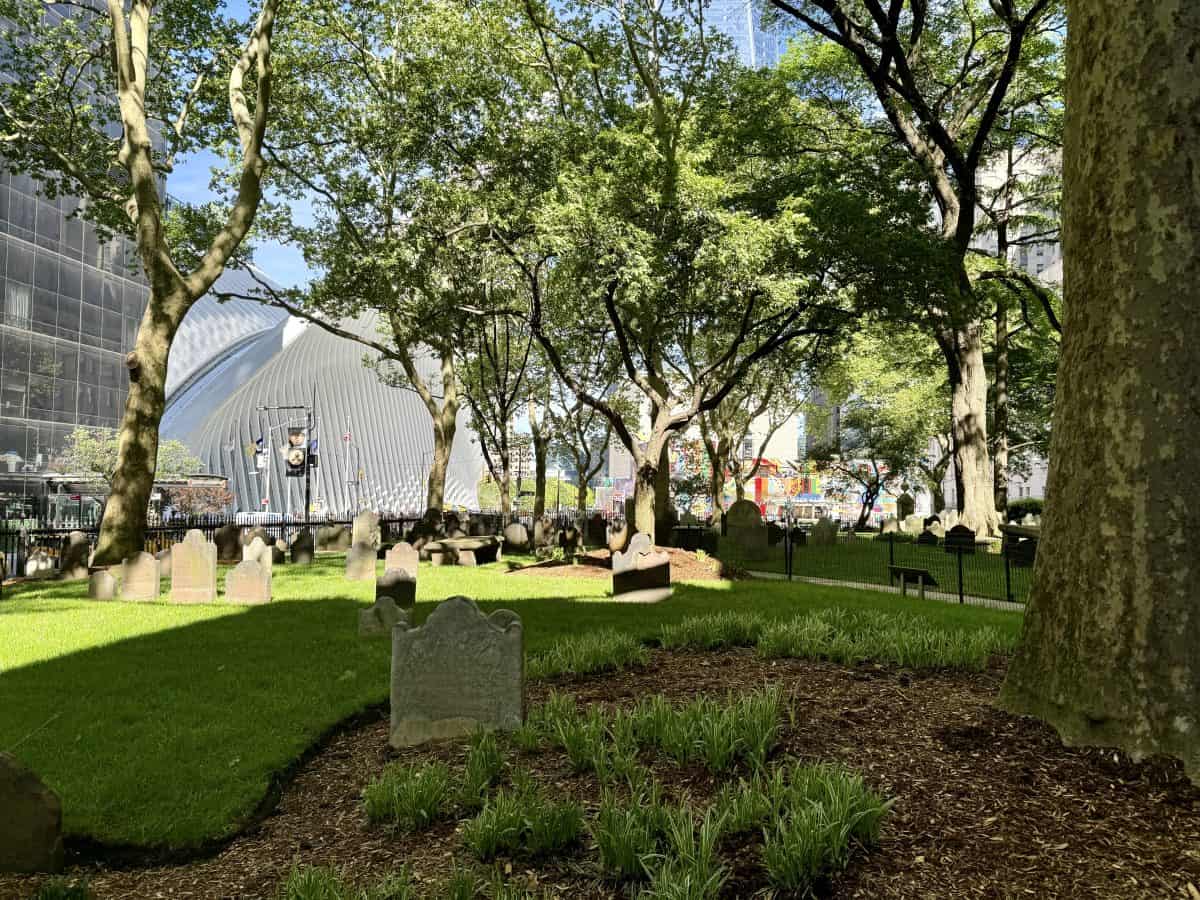
Bonus: Be sure to check out the Canyon of Heroes that runs along Broadway from Battery Place to Chambers Street (City Hall) There are over 200 black granite plaques displayed on both sides of the sidewalk that list every ticker tape parade in New York City history, with the date and name of the event.
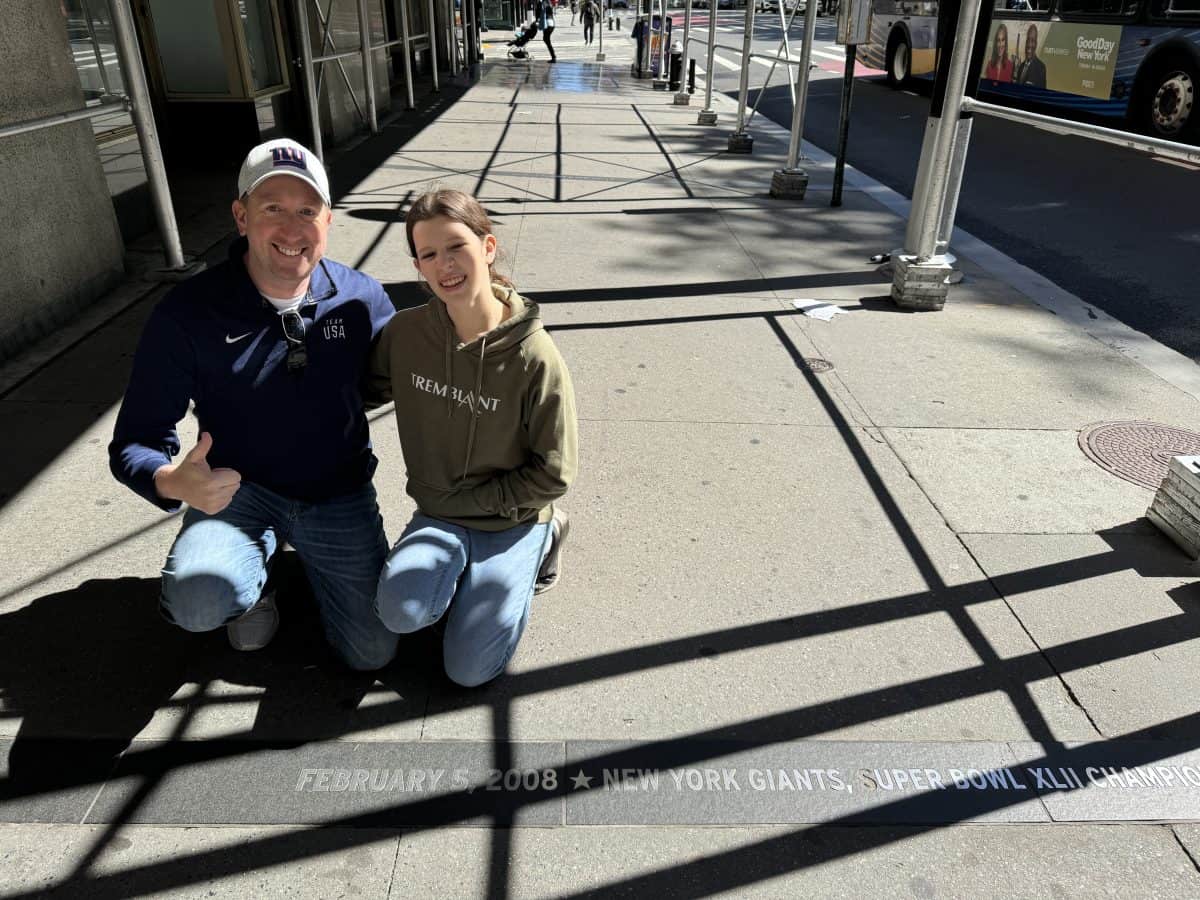
Looking for other things to do in the Financial District? Check out our posts featuring African Burial Ground National Monument, Federal Hall National Monument, National Museum of the American Indian, and our full Financial District City Guide.
And follow along on our adventures on Instagram, Pinterest, Facebook, and X.

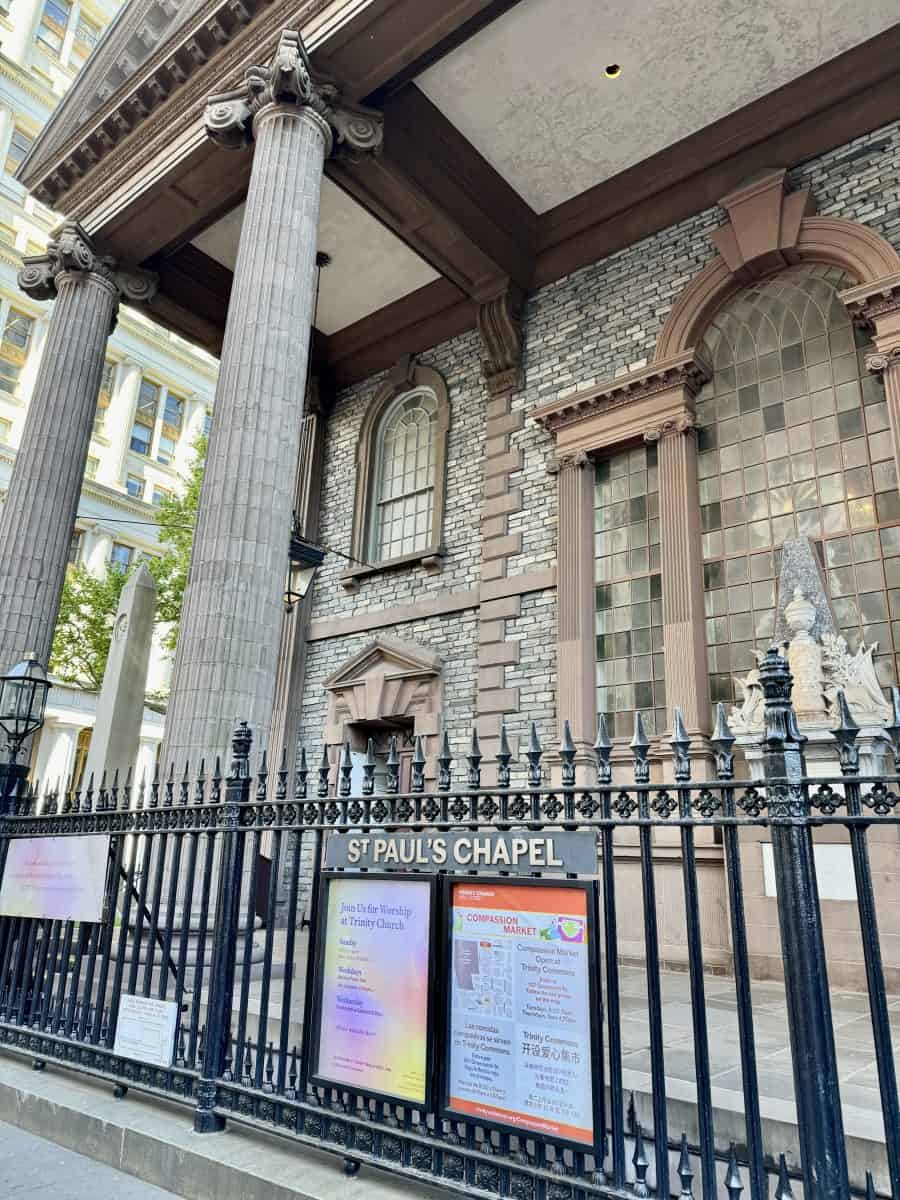
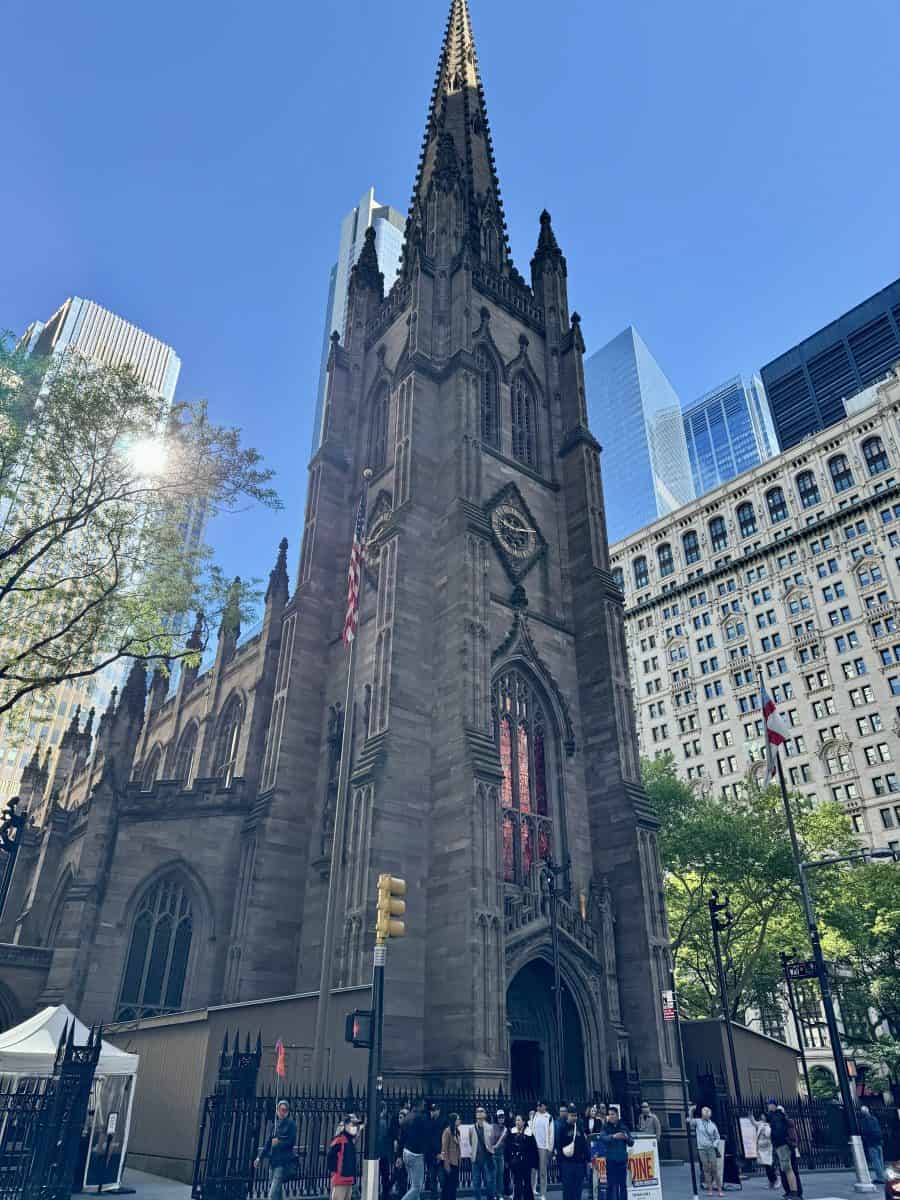
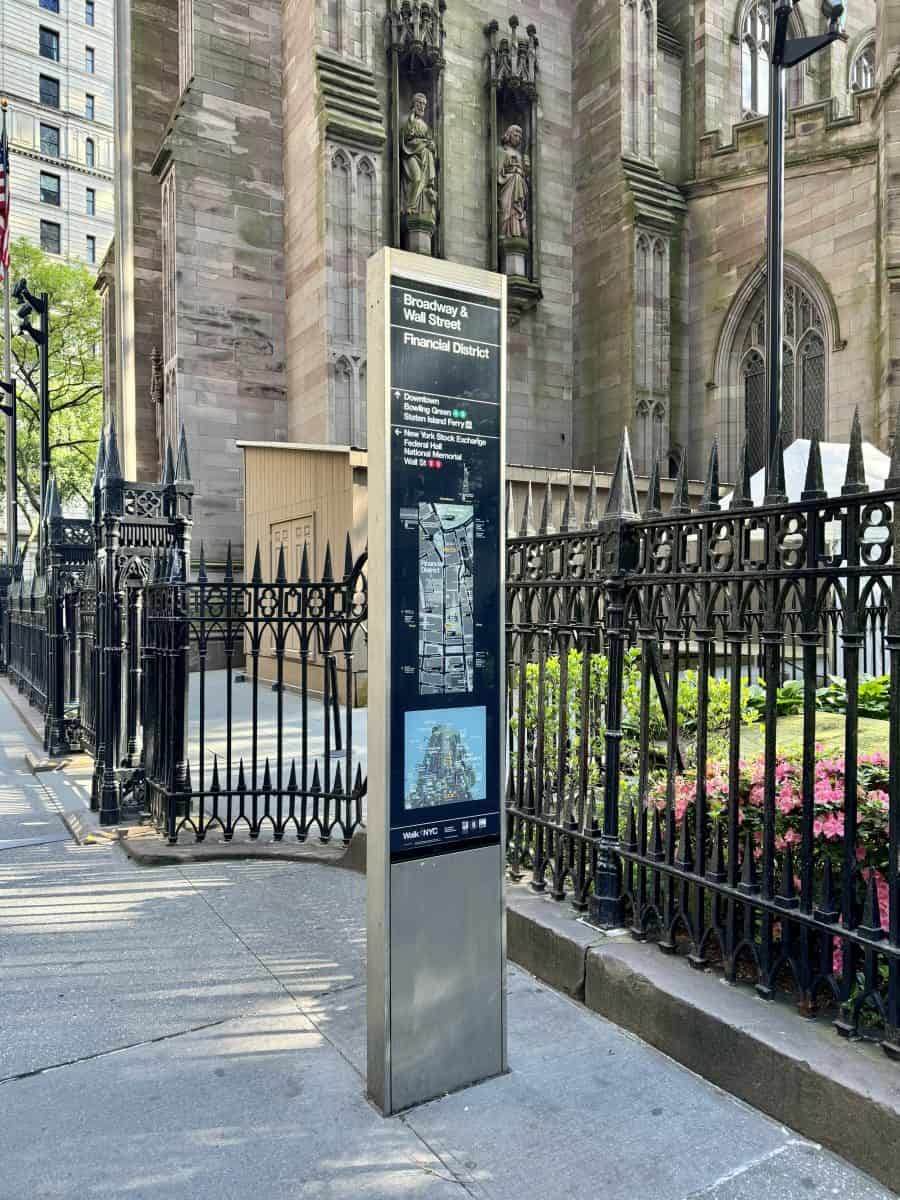
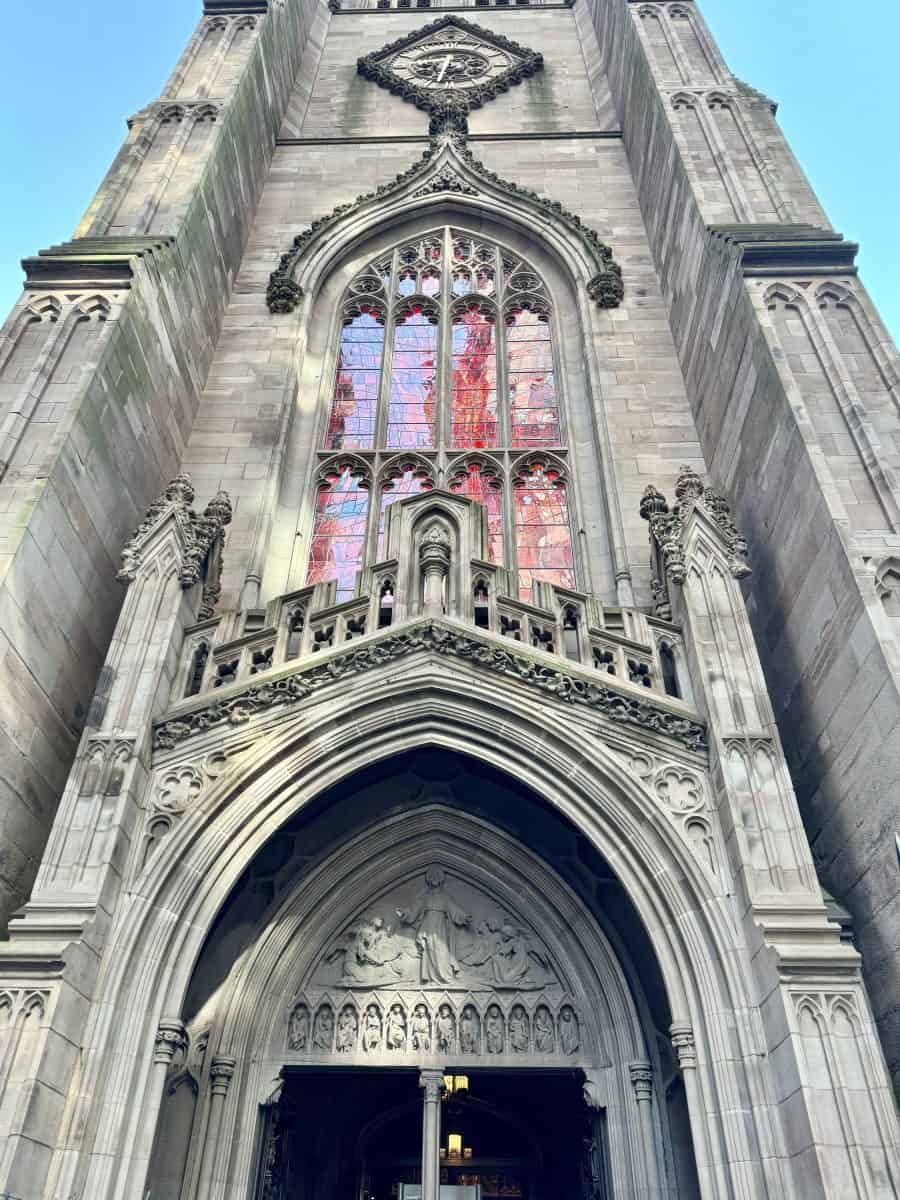
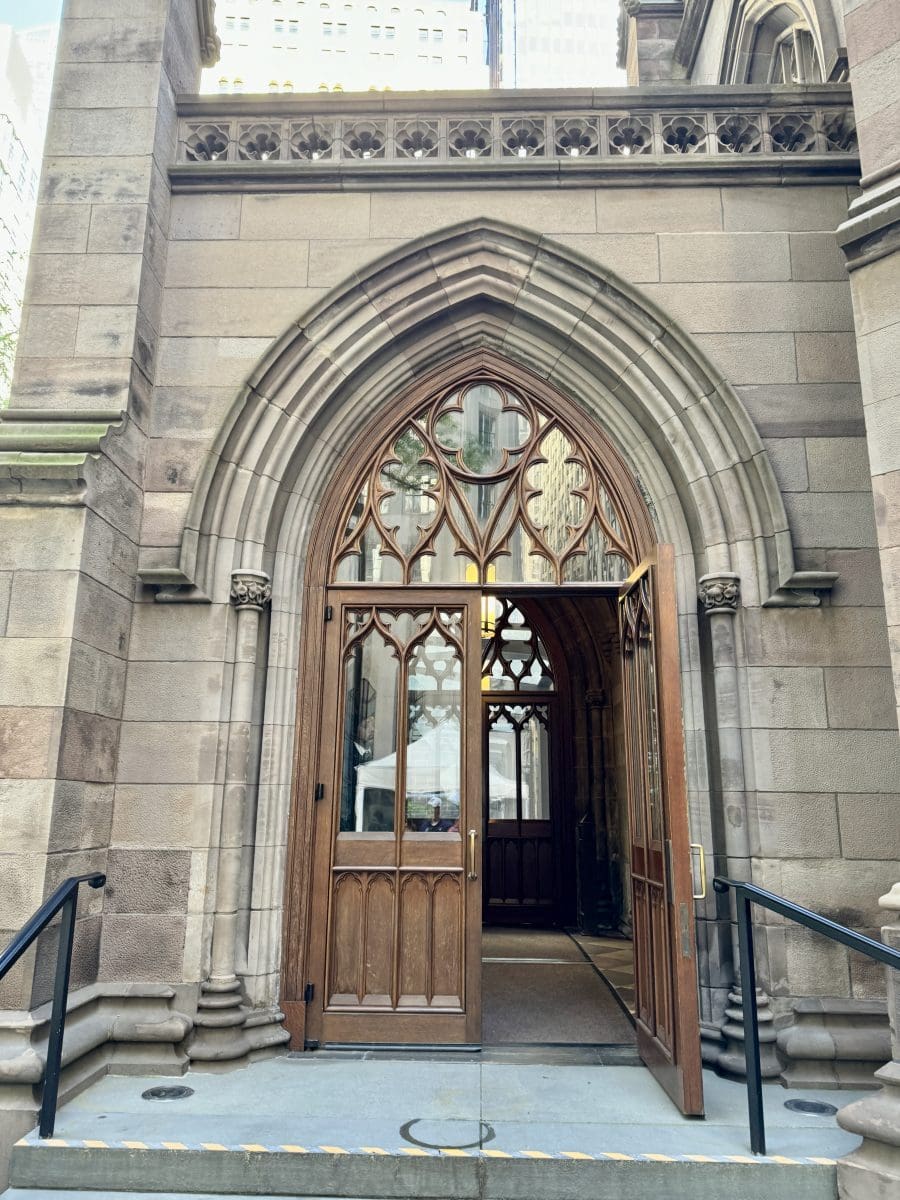
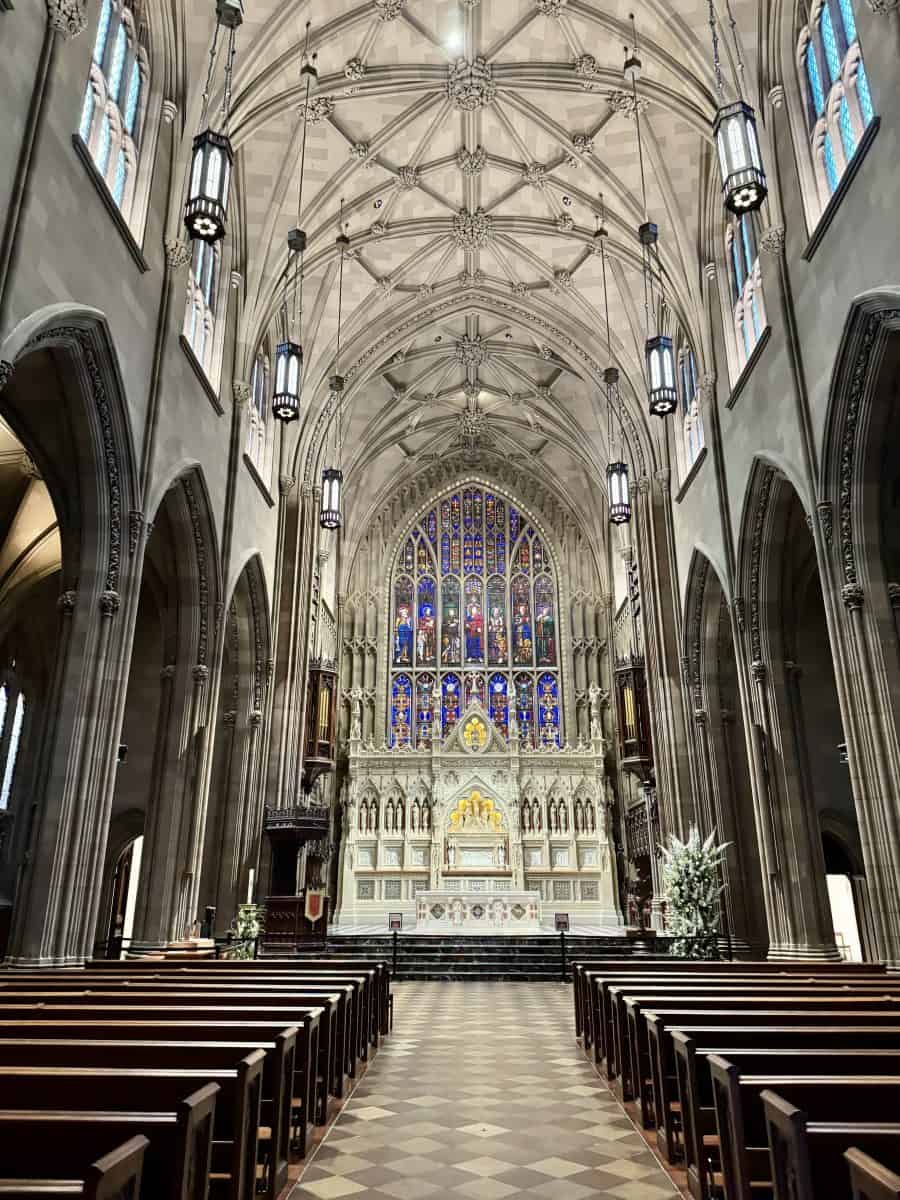
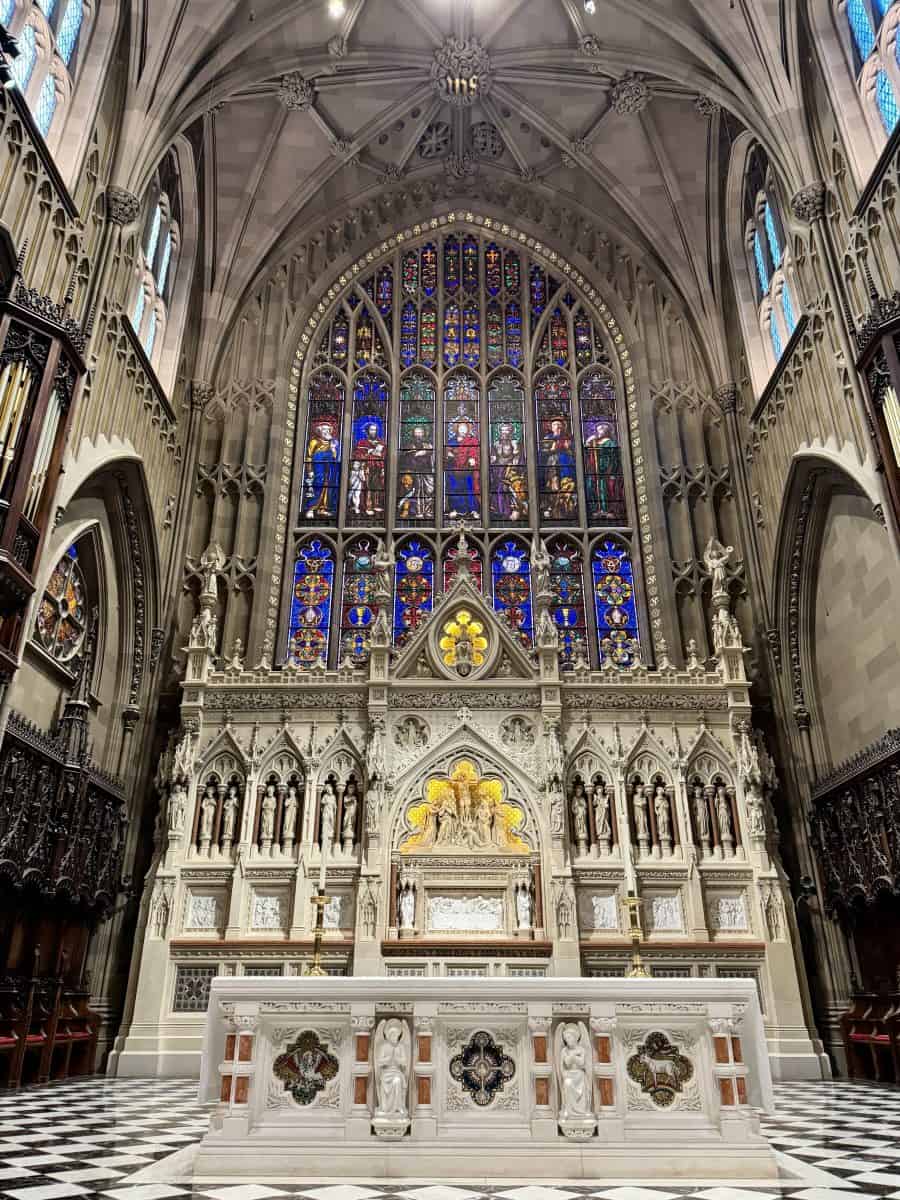
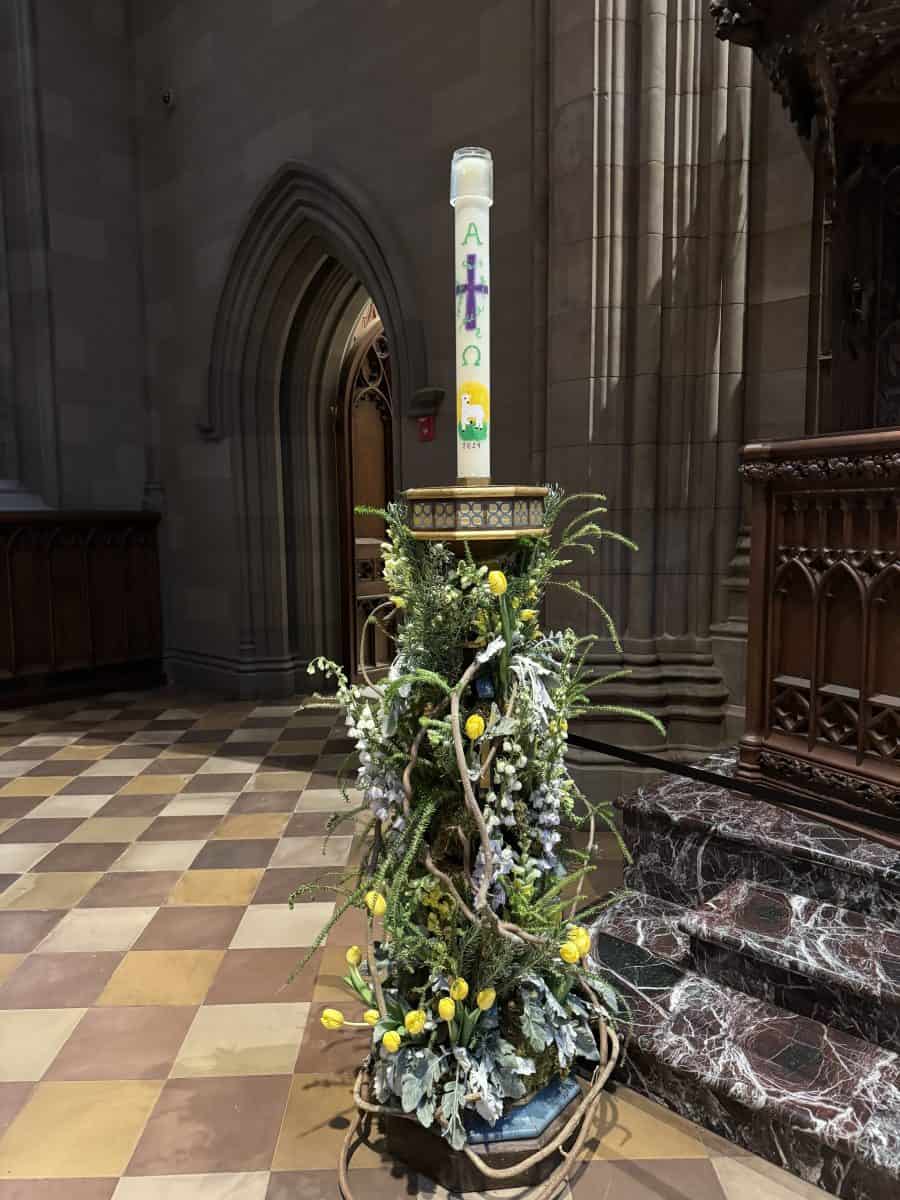
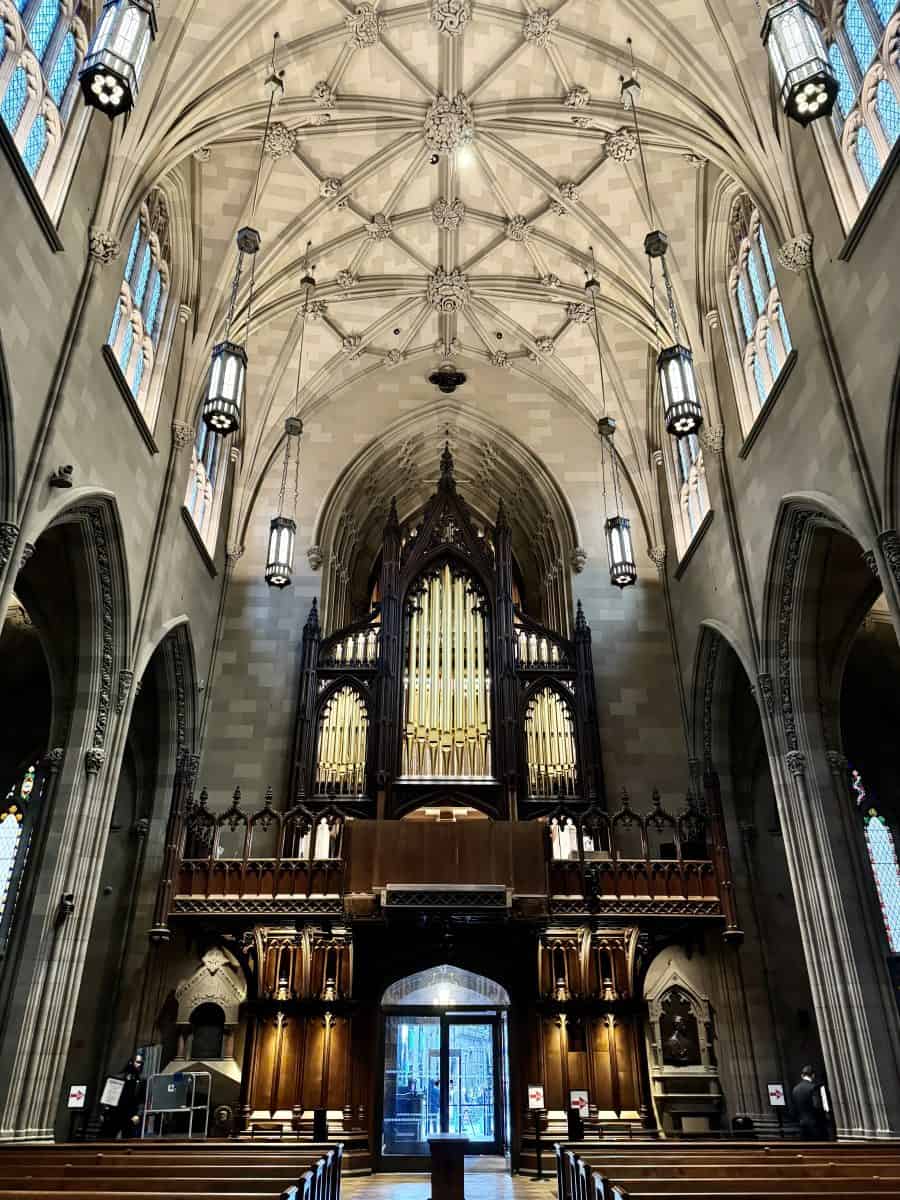
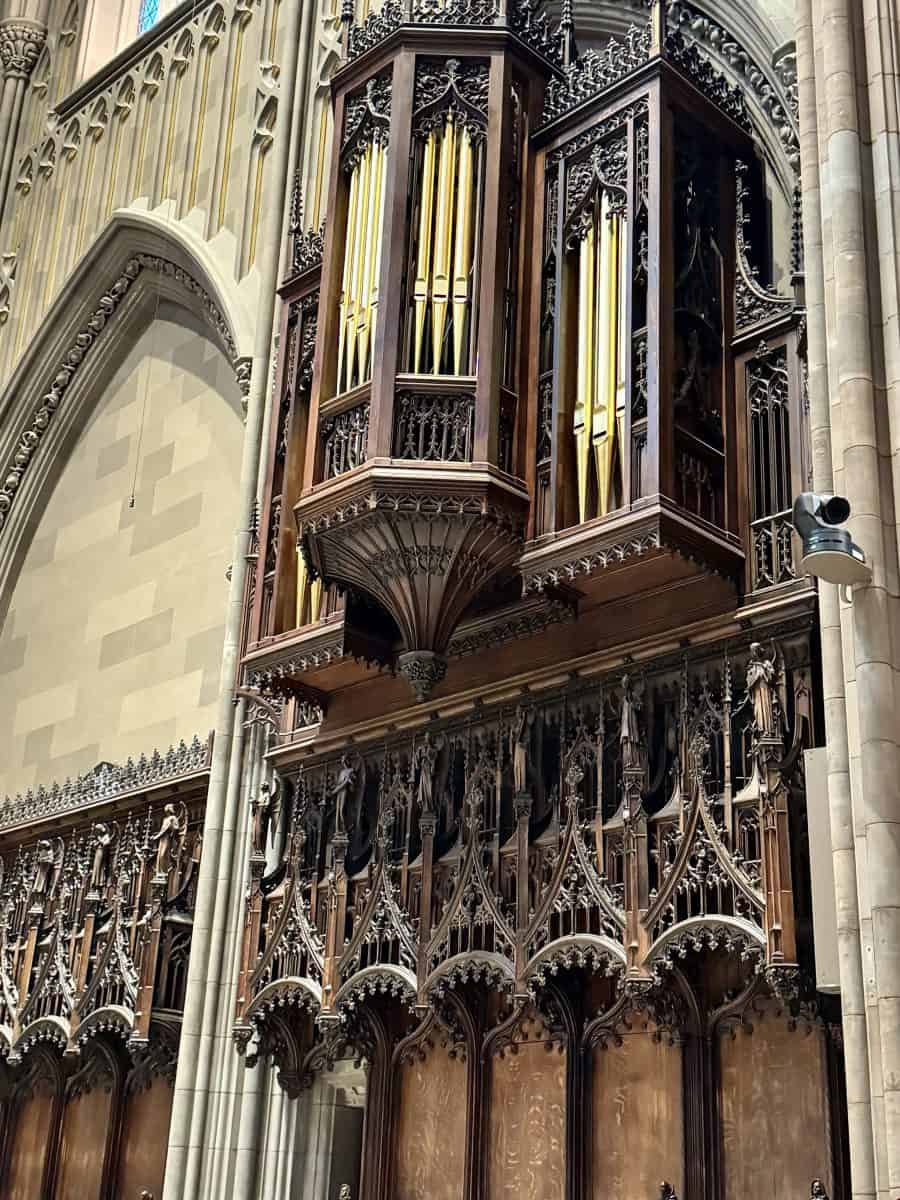
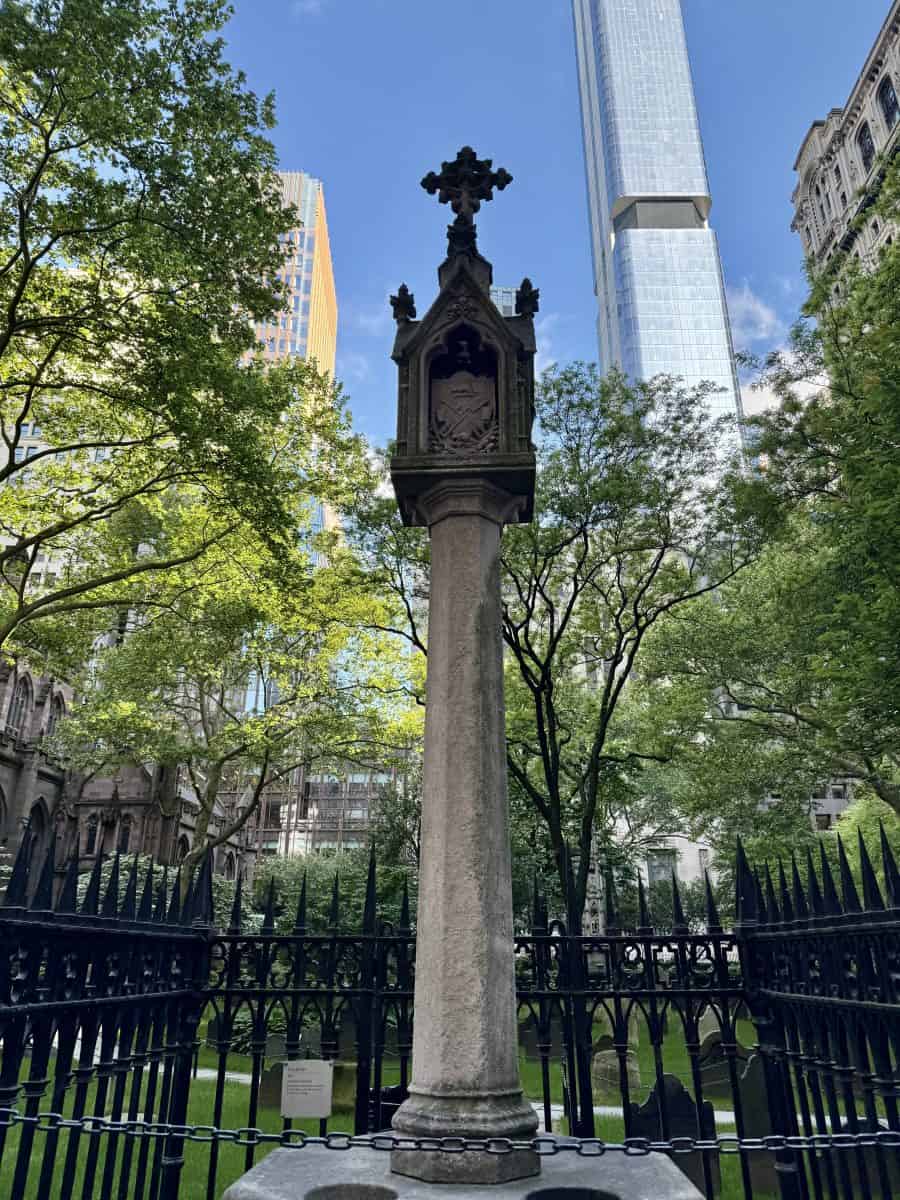
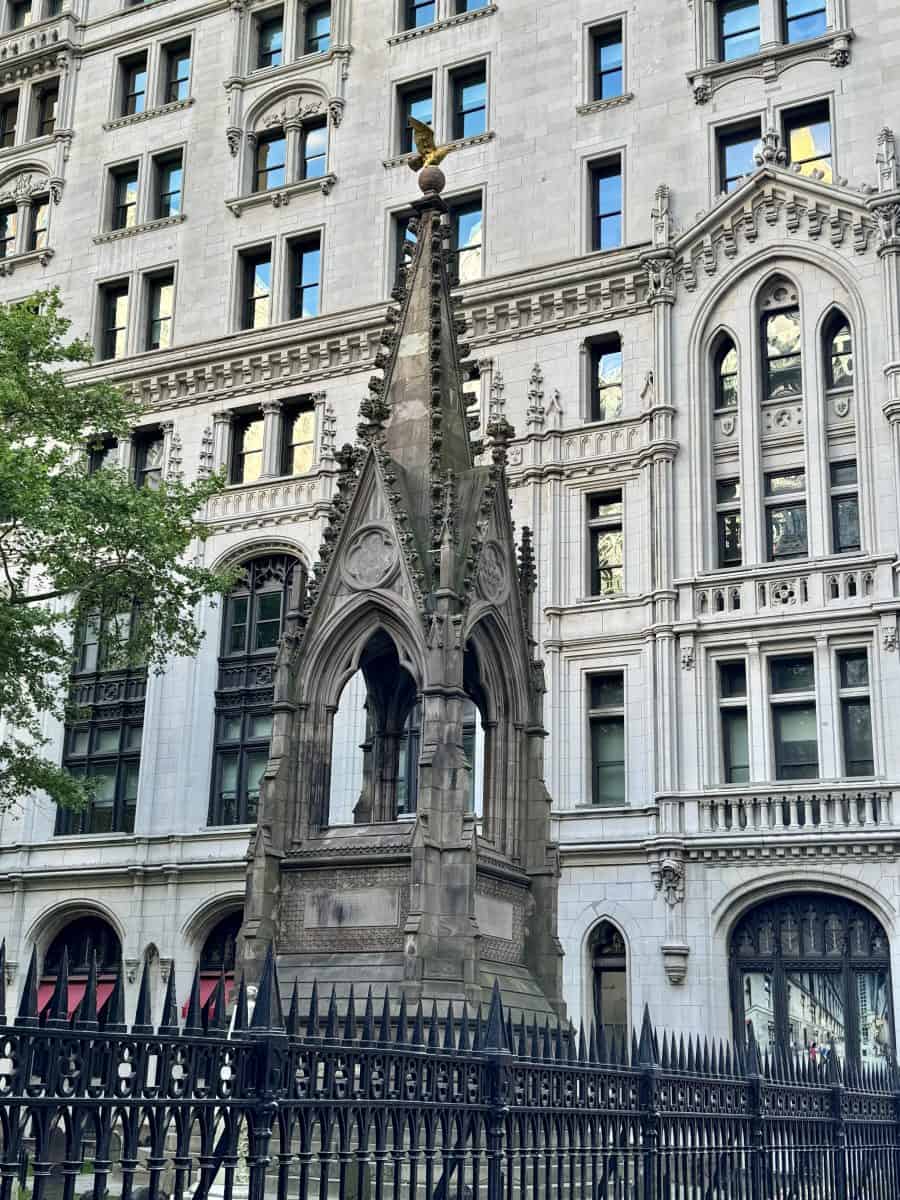
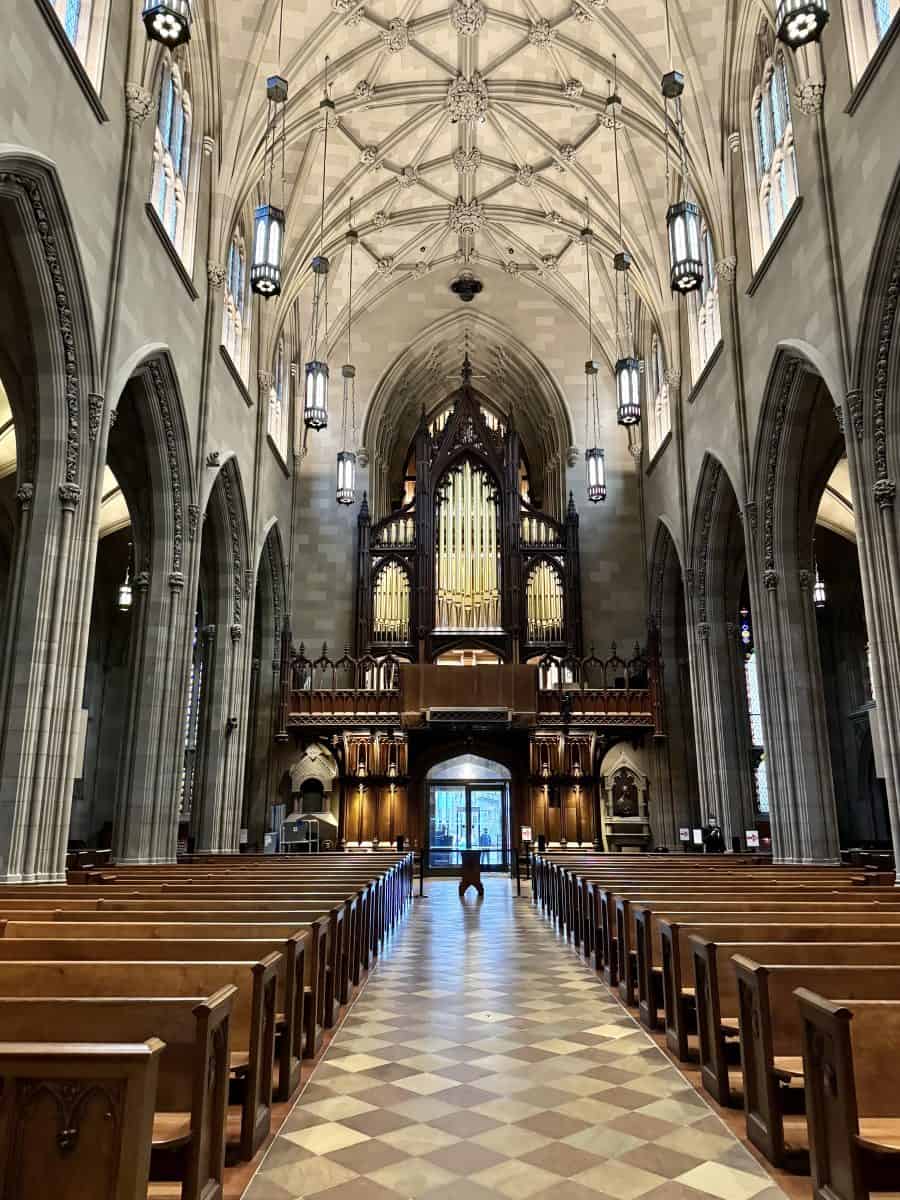
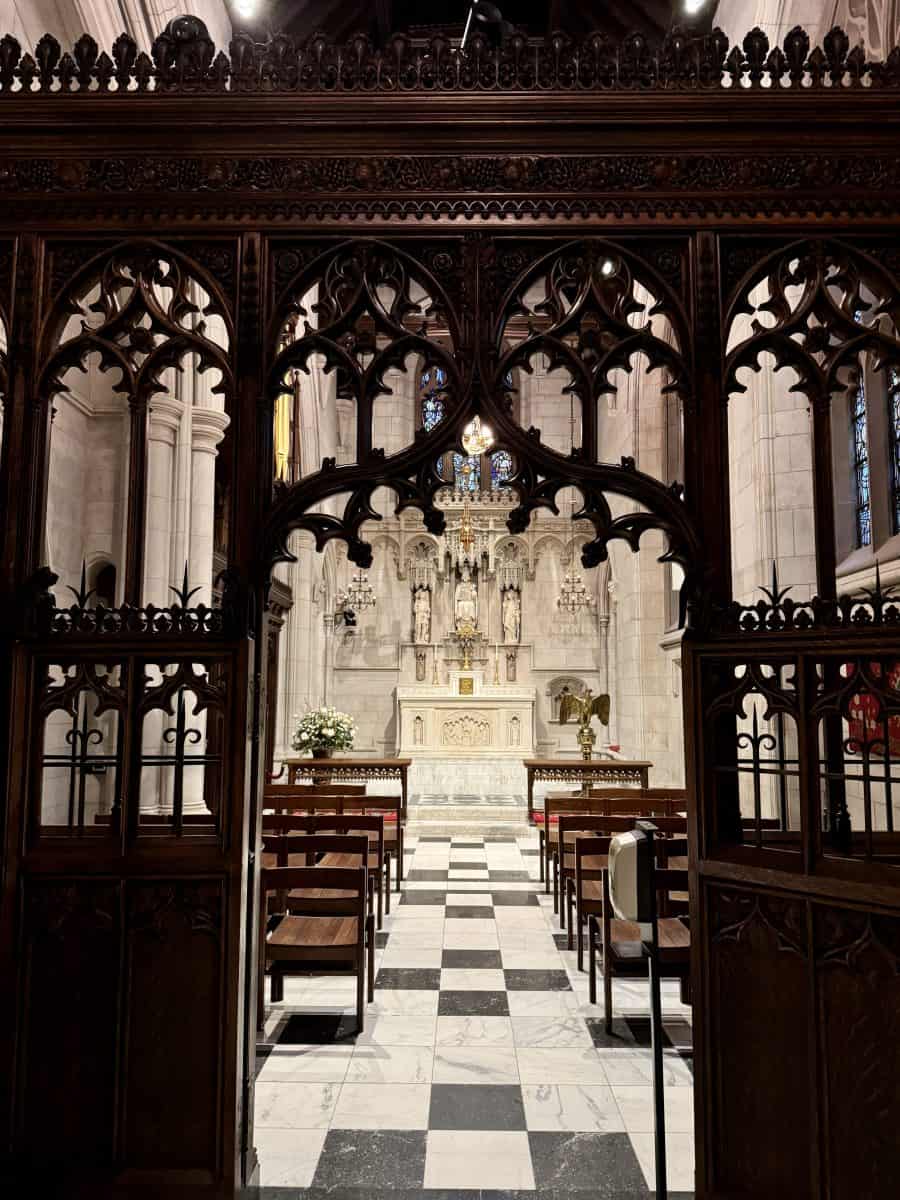
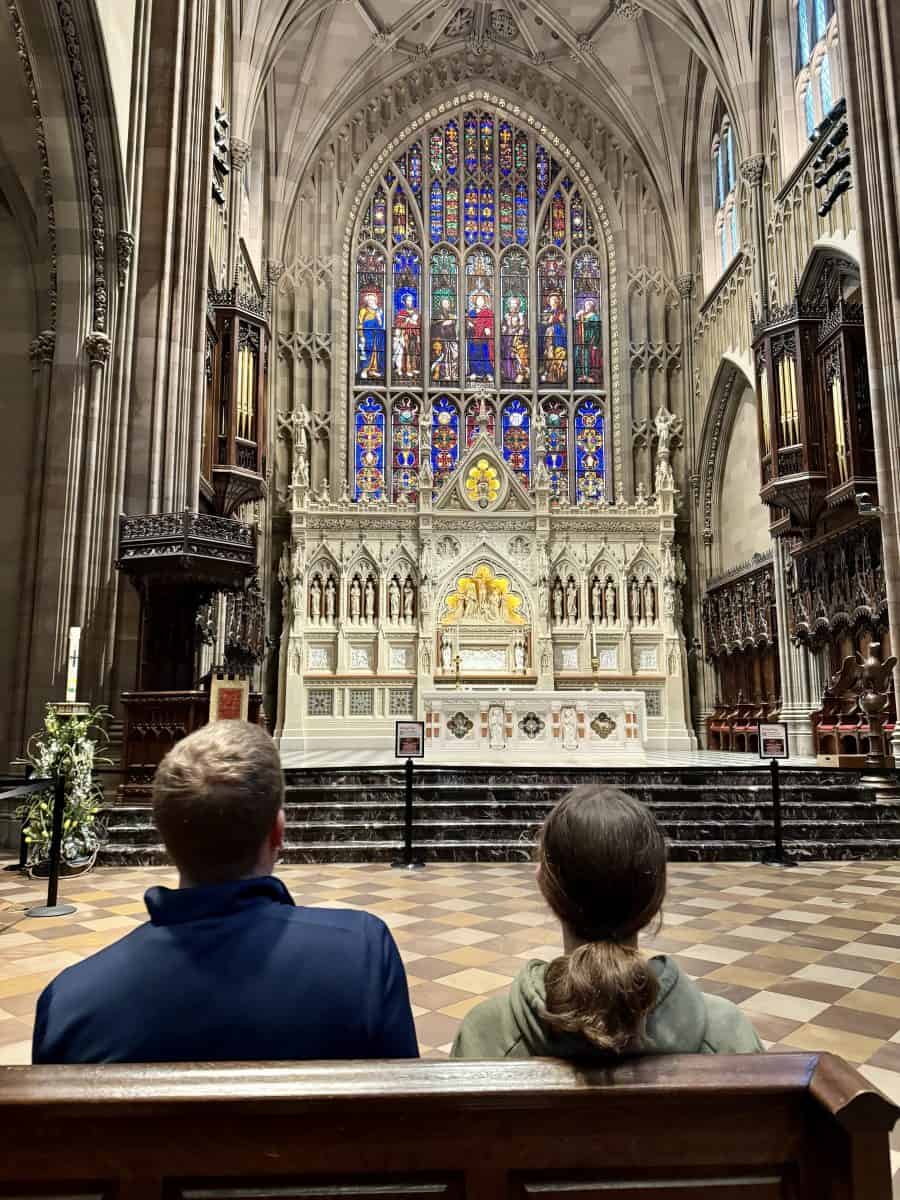
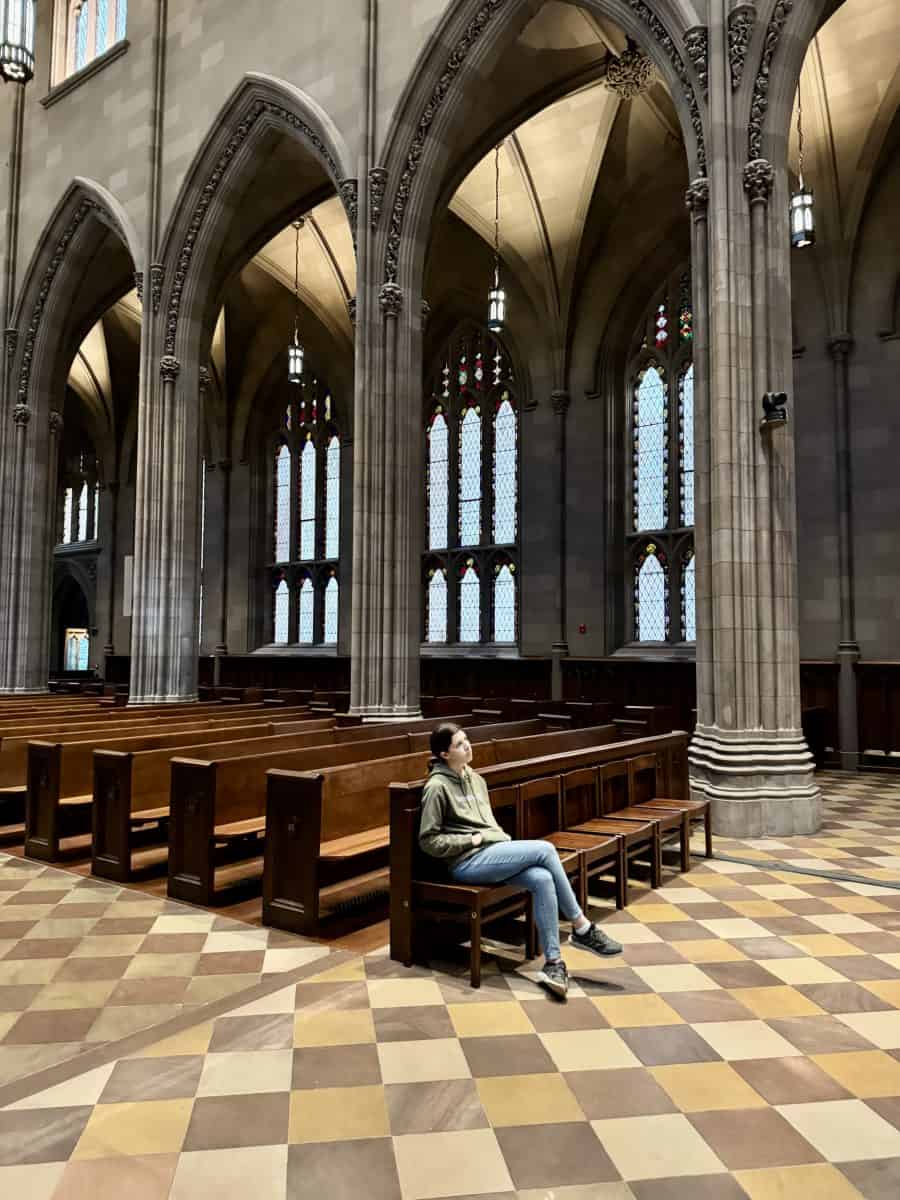
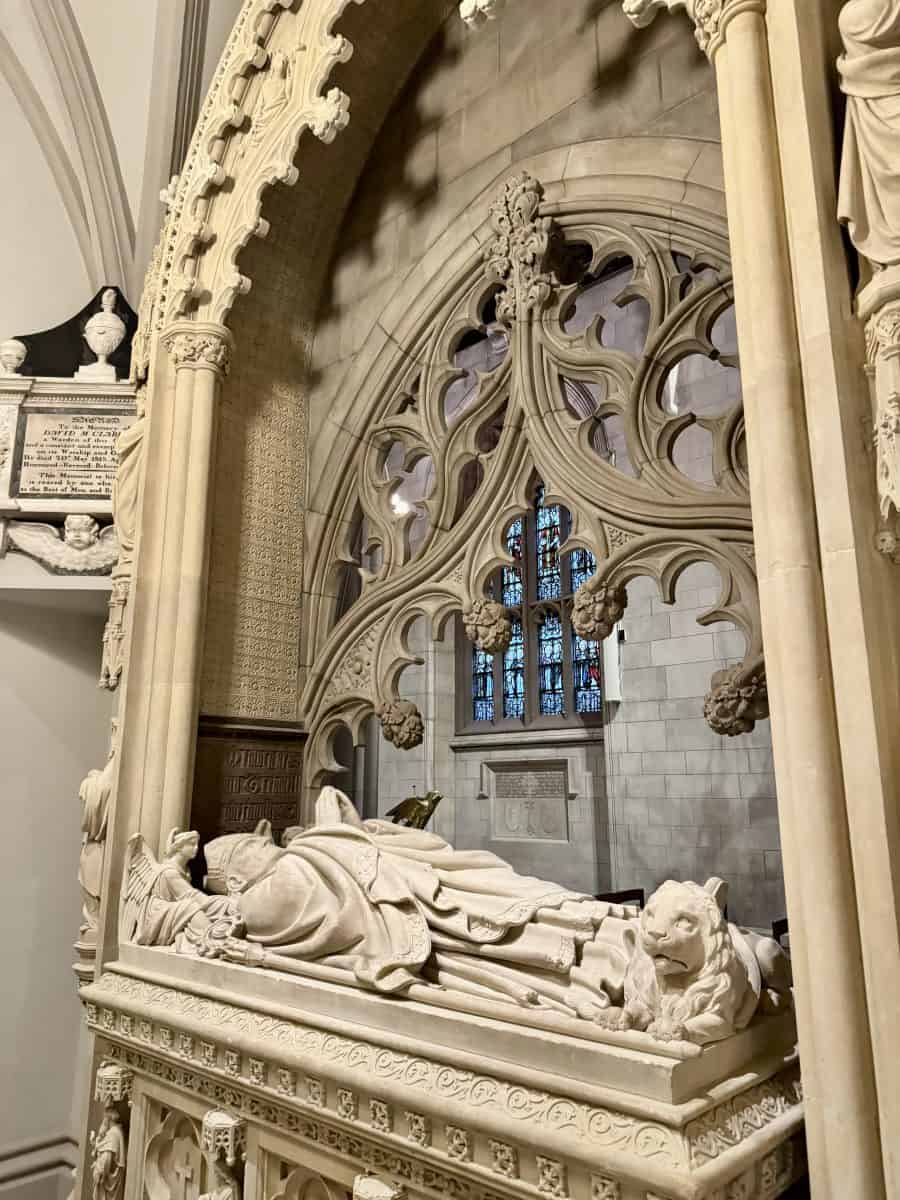
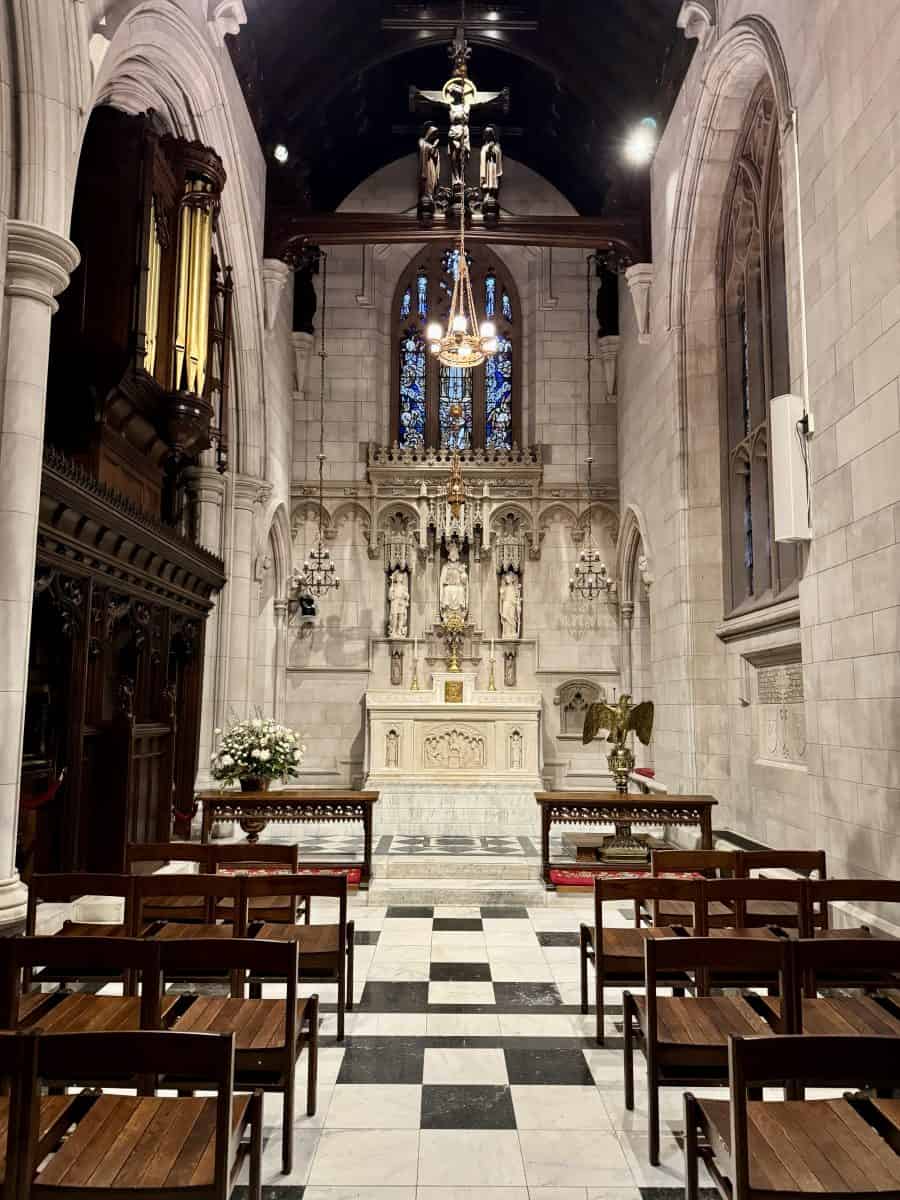
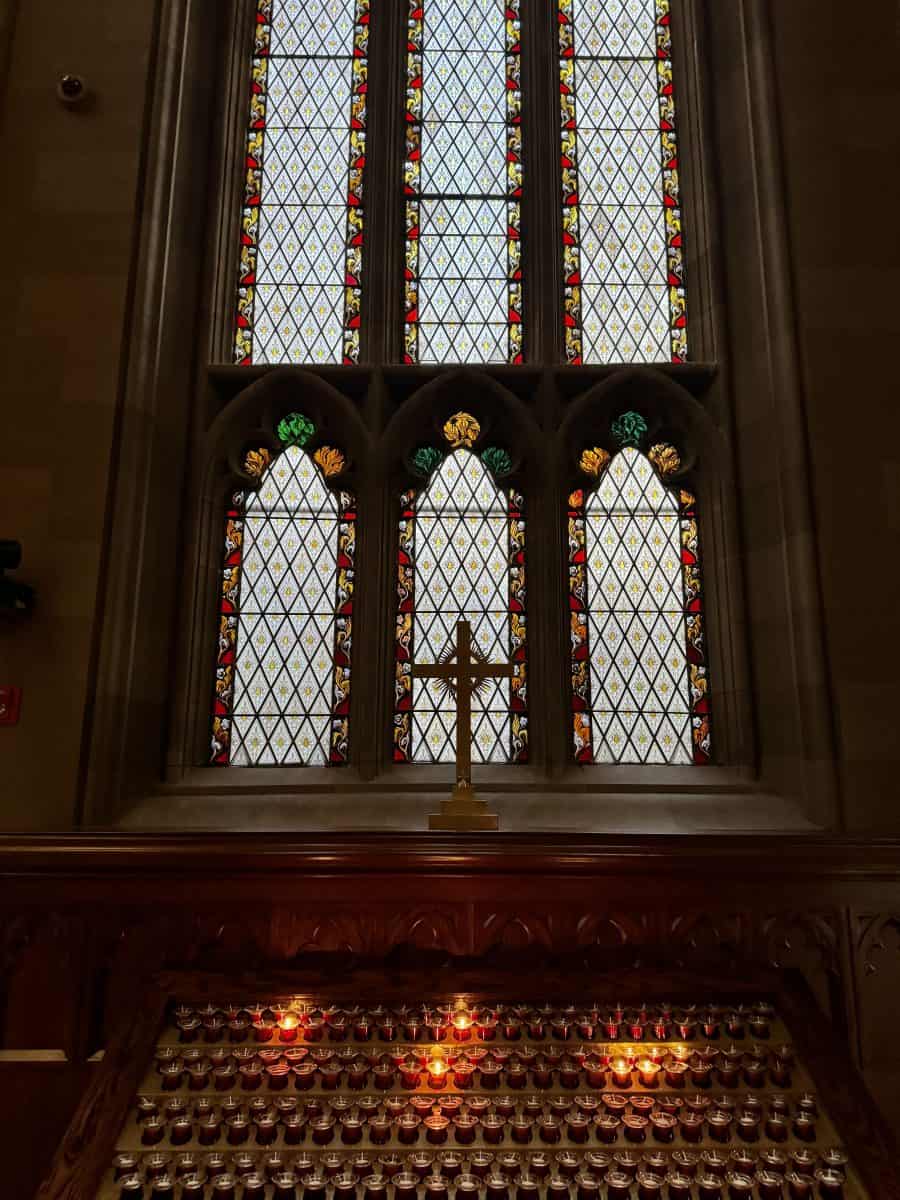
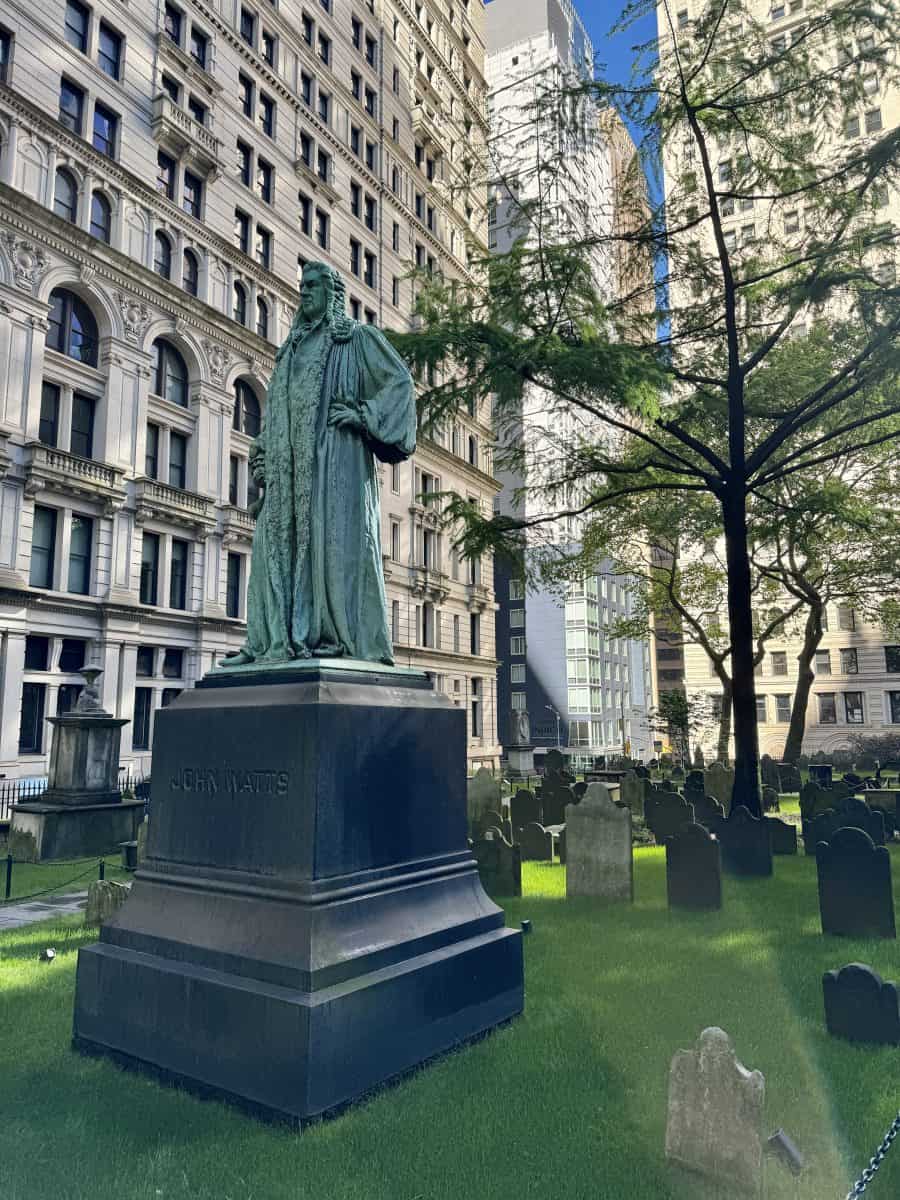
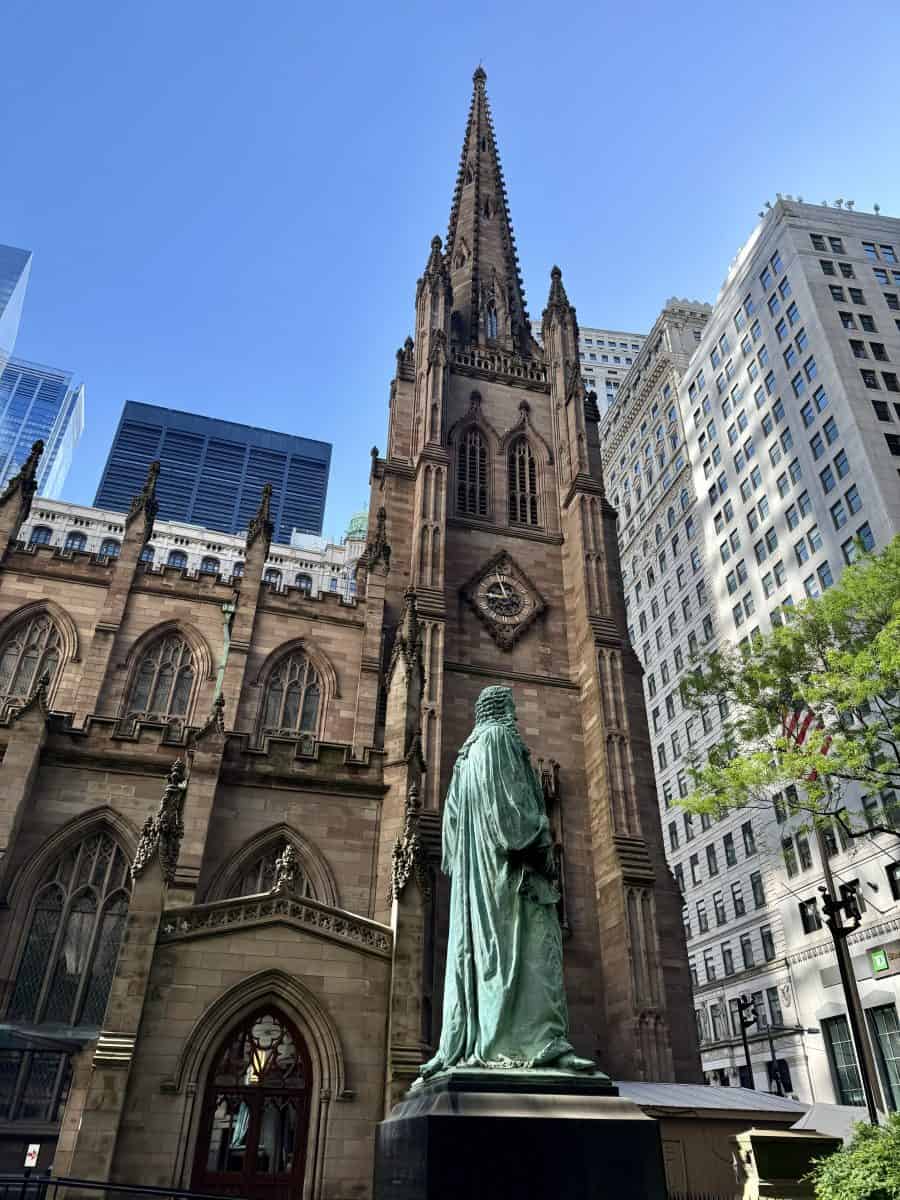
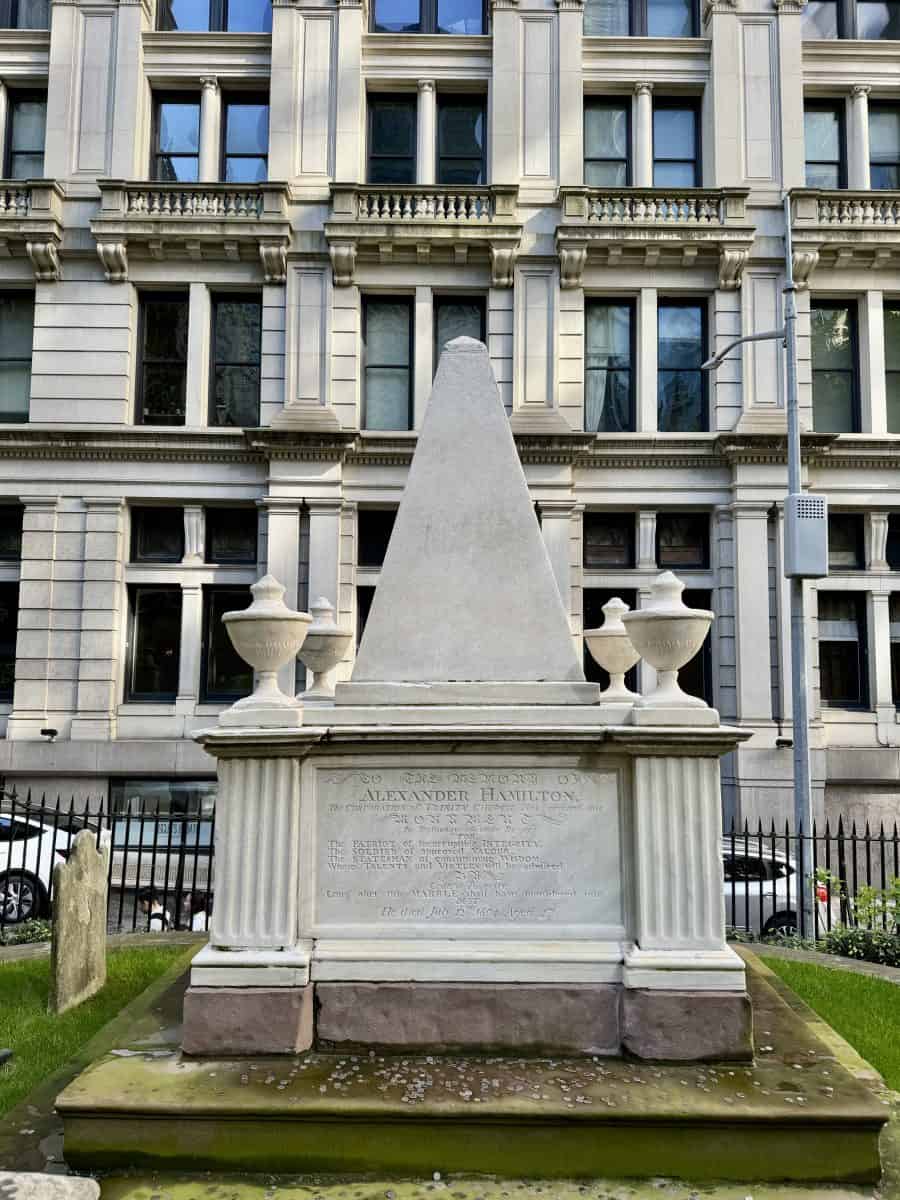
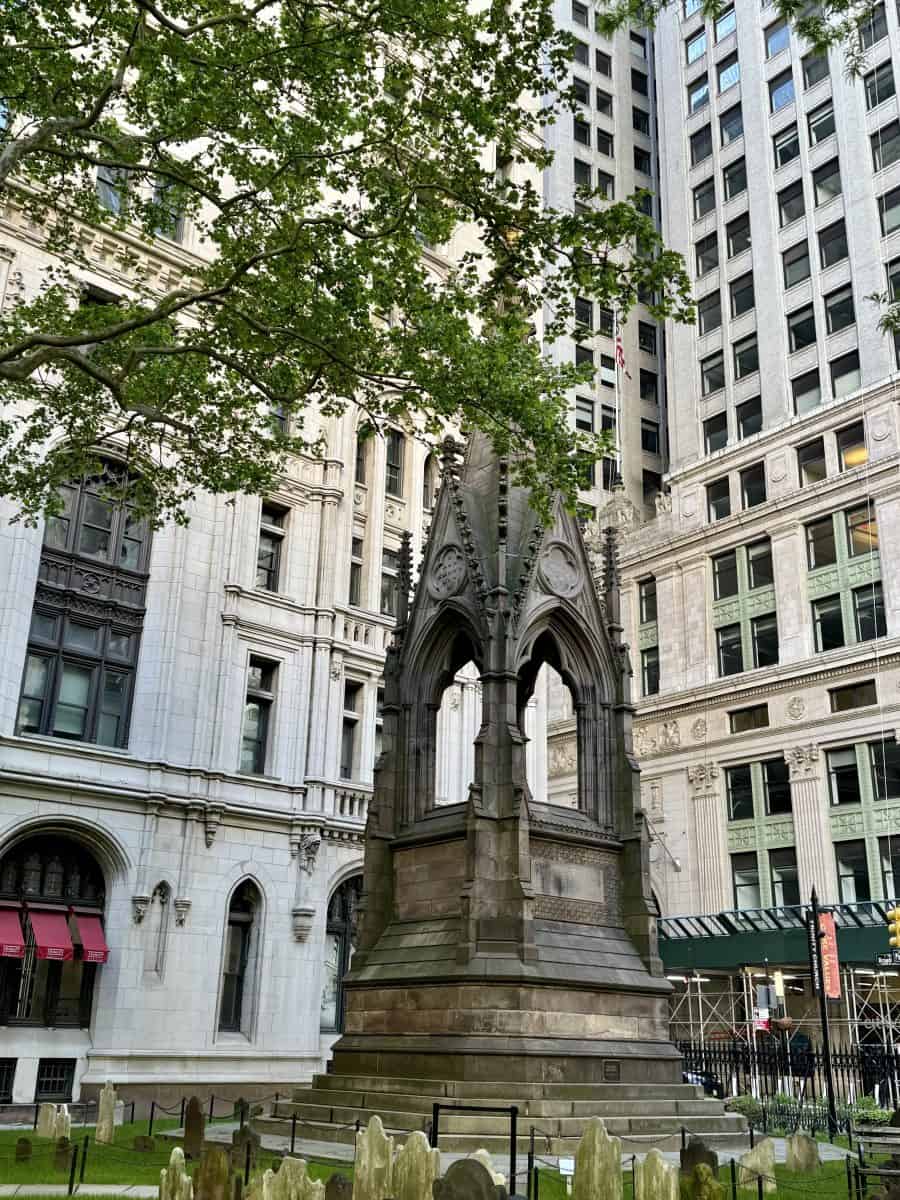
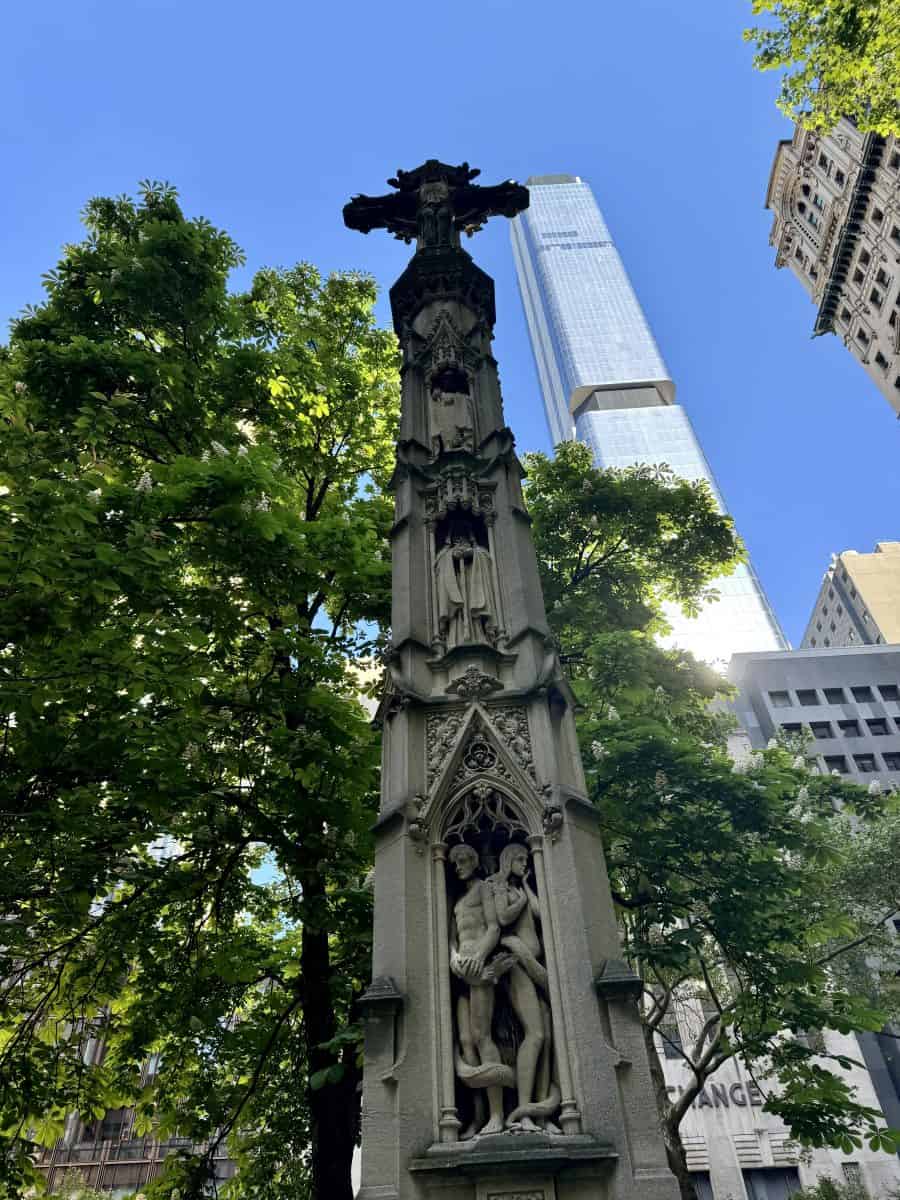
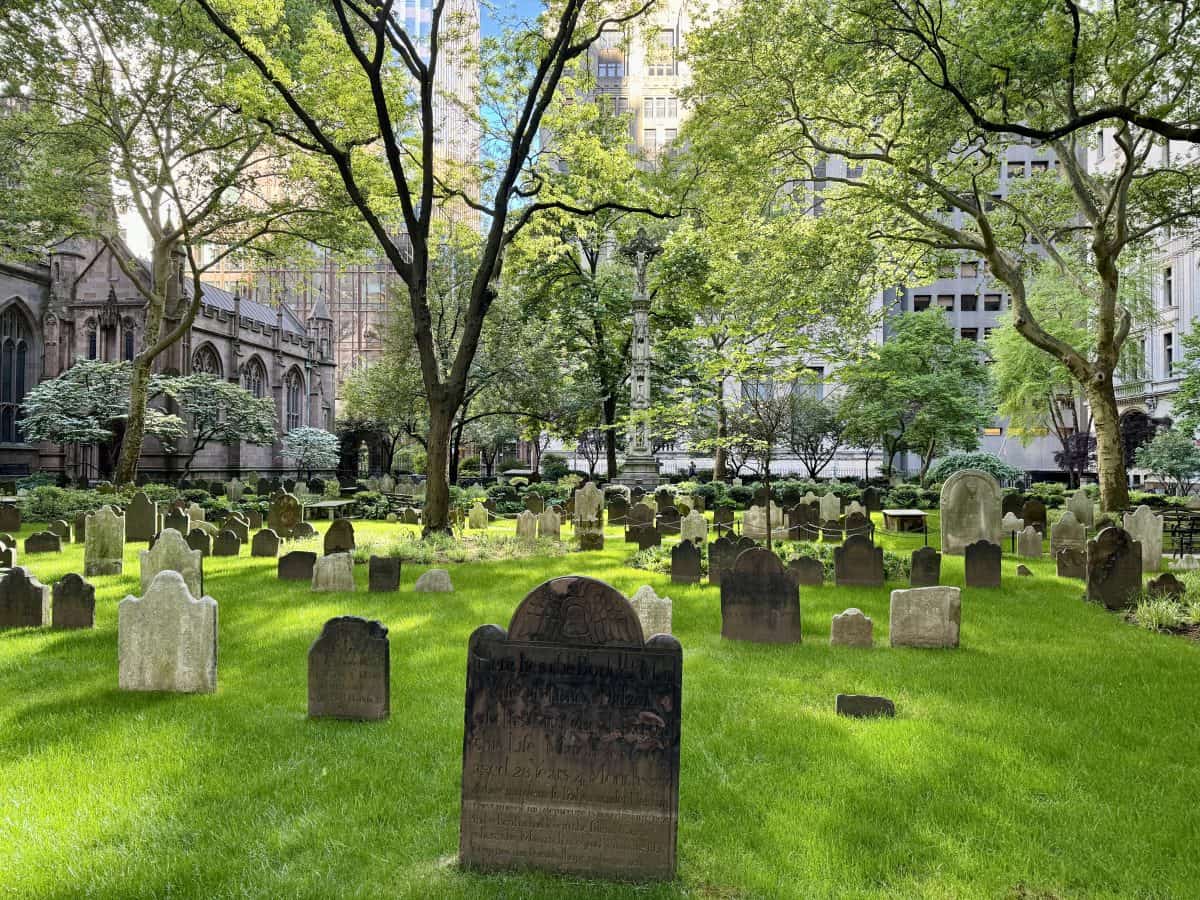
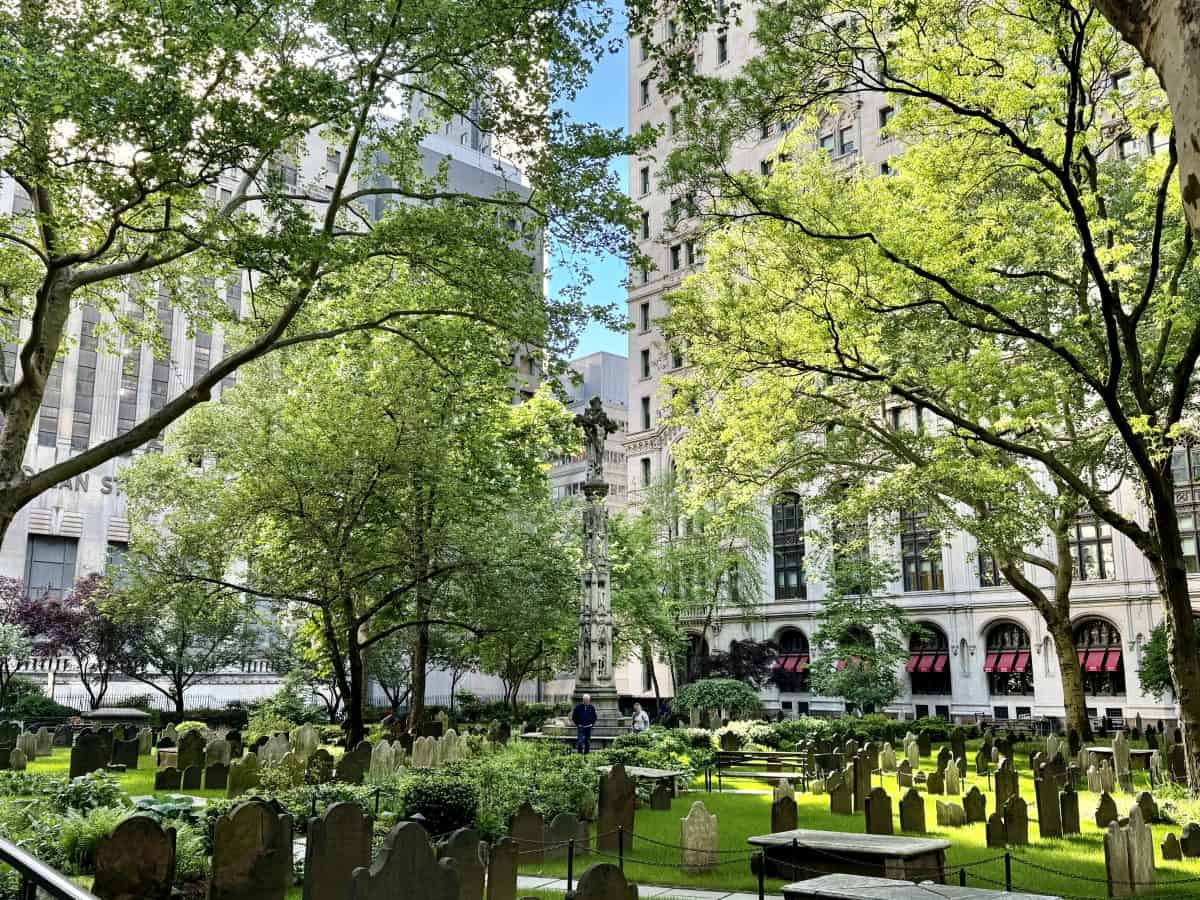
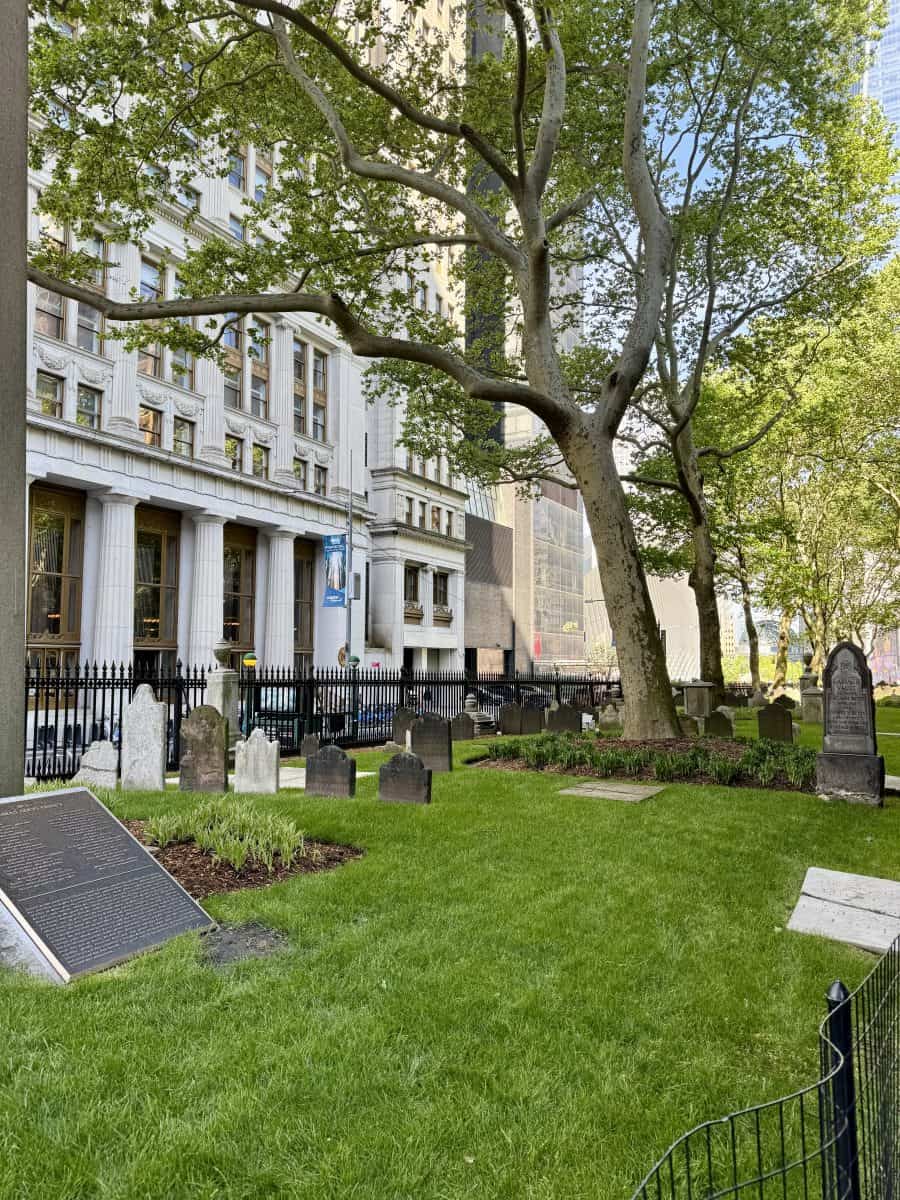
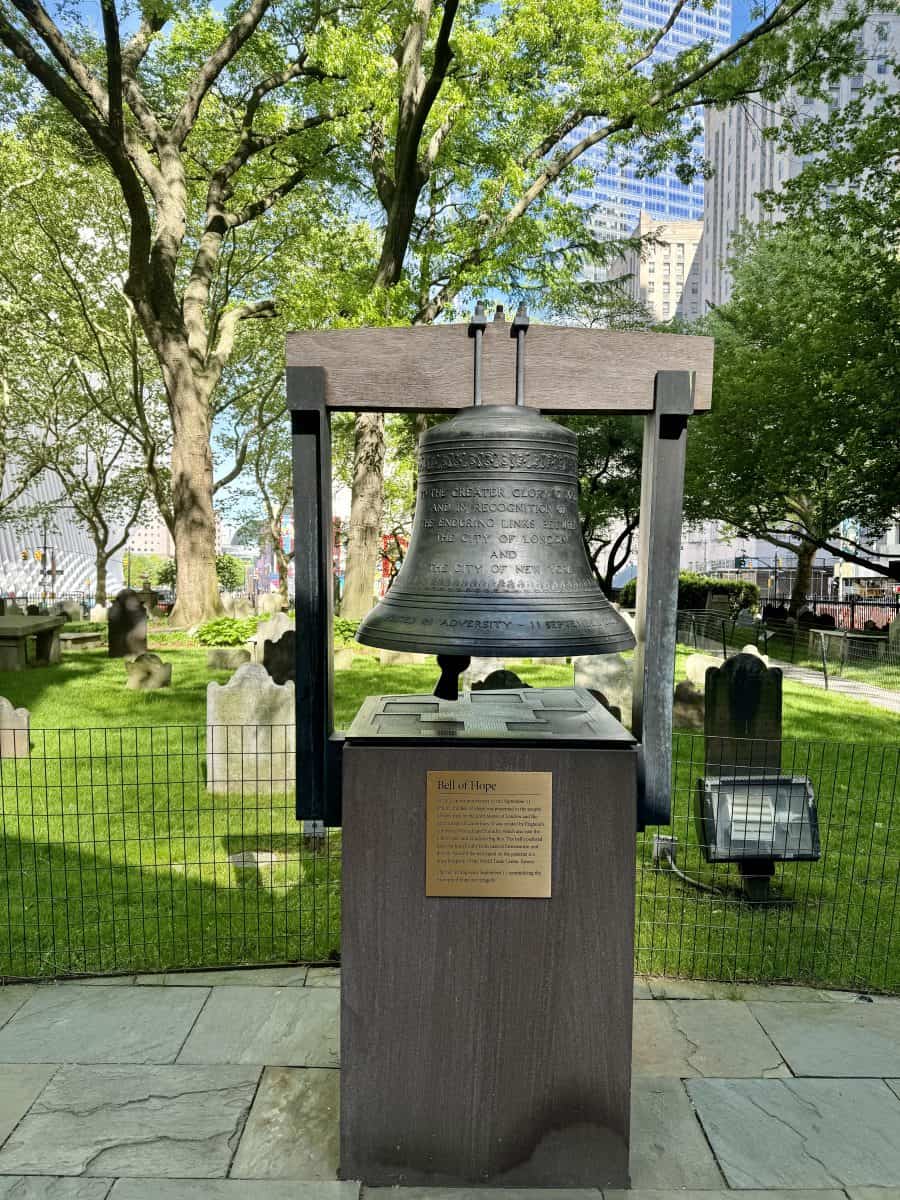
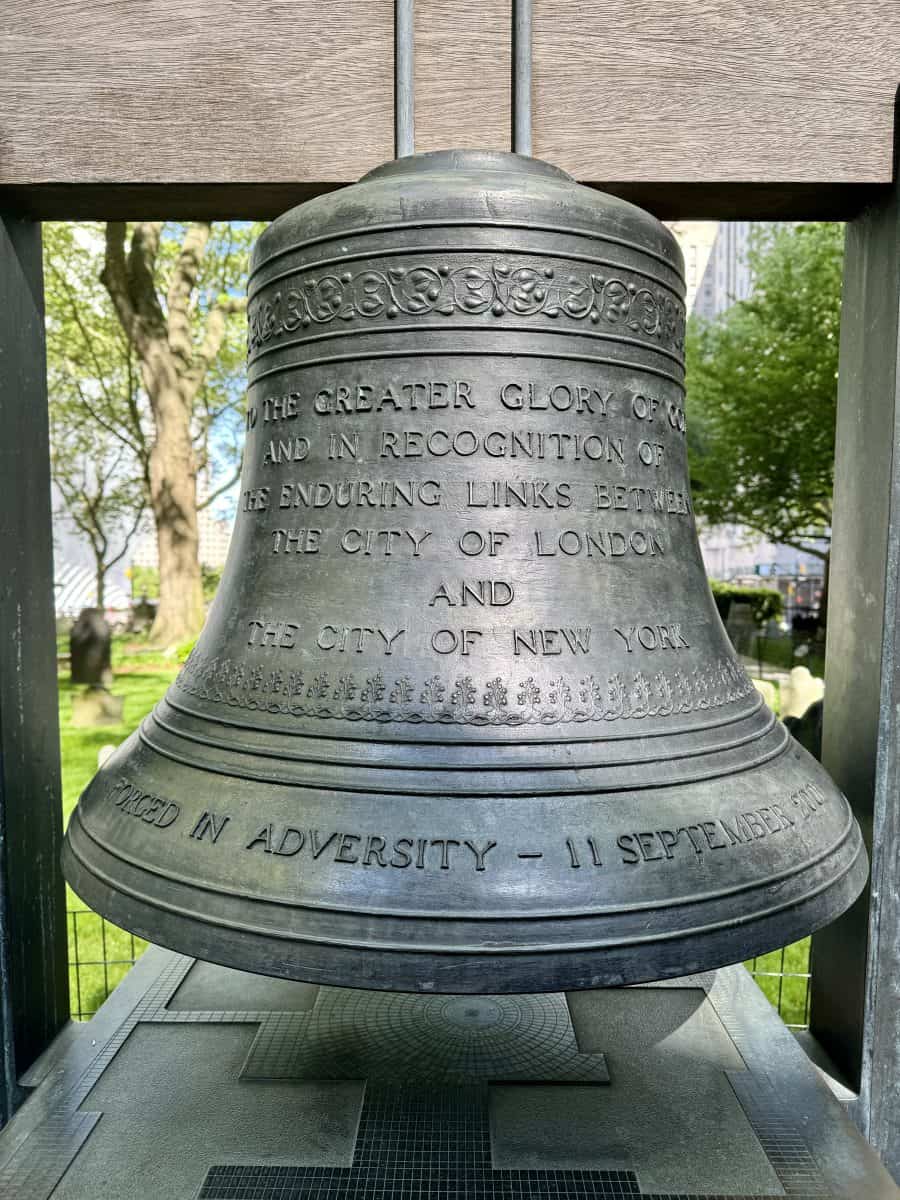
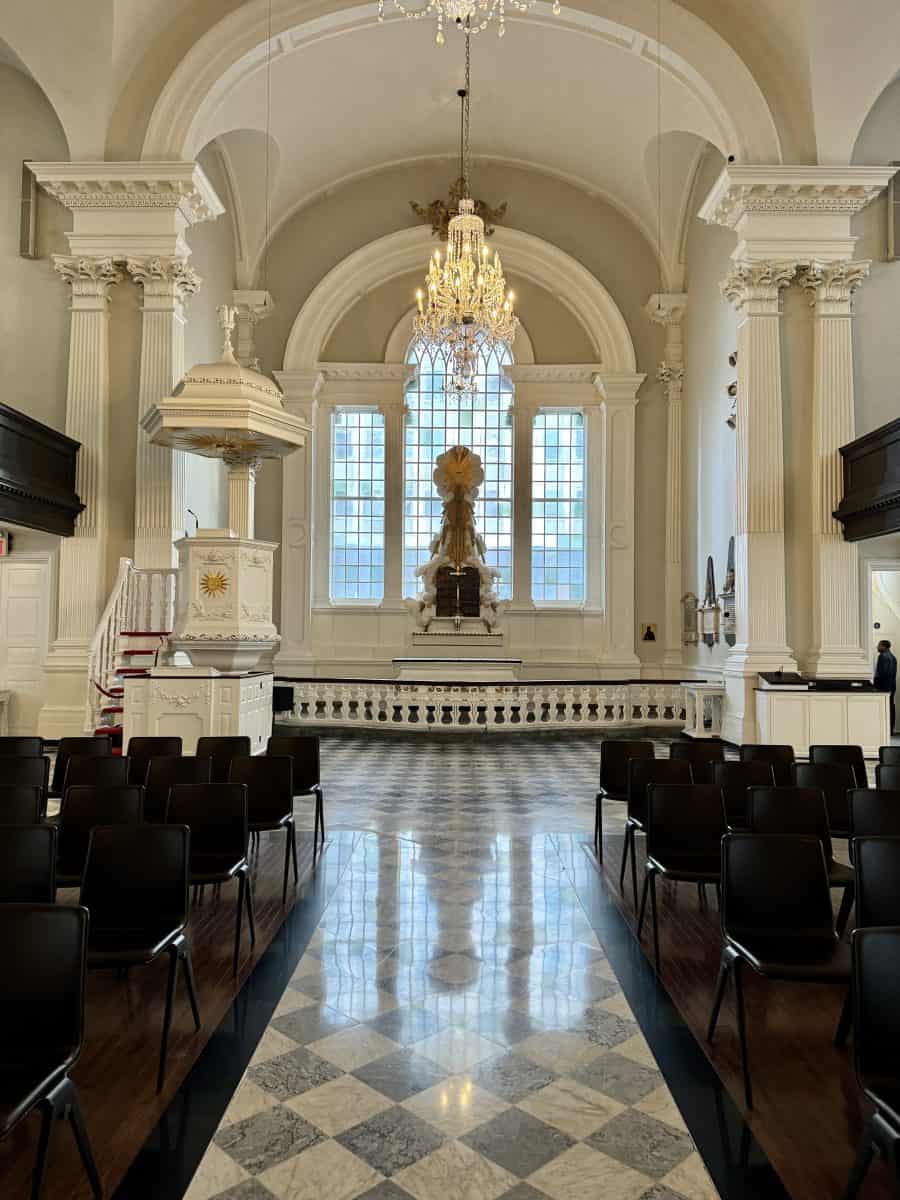
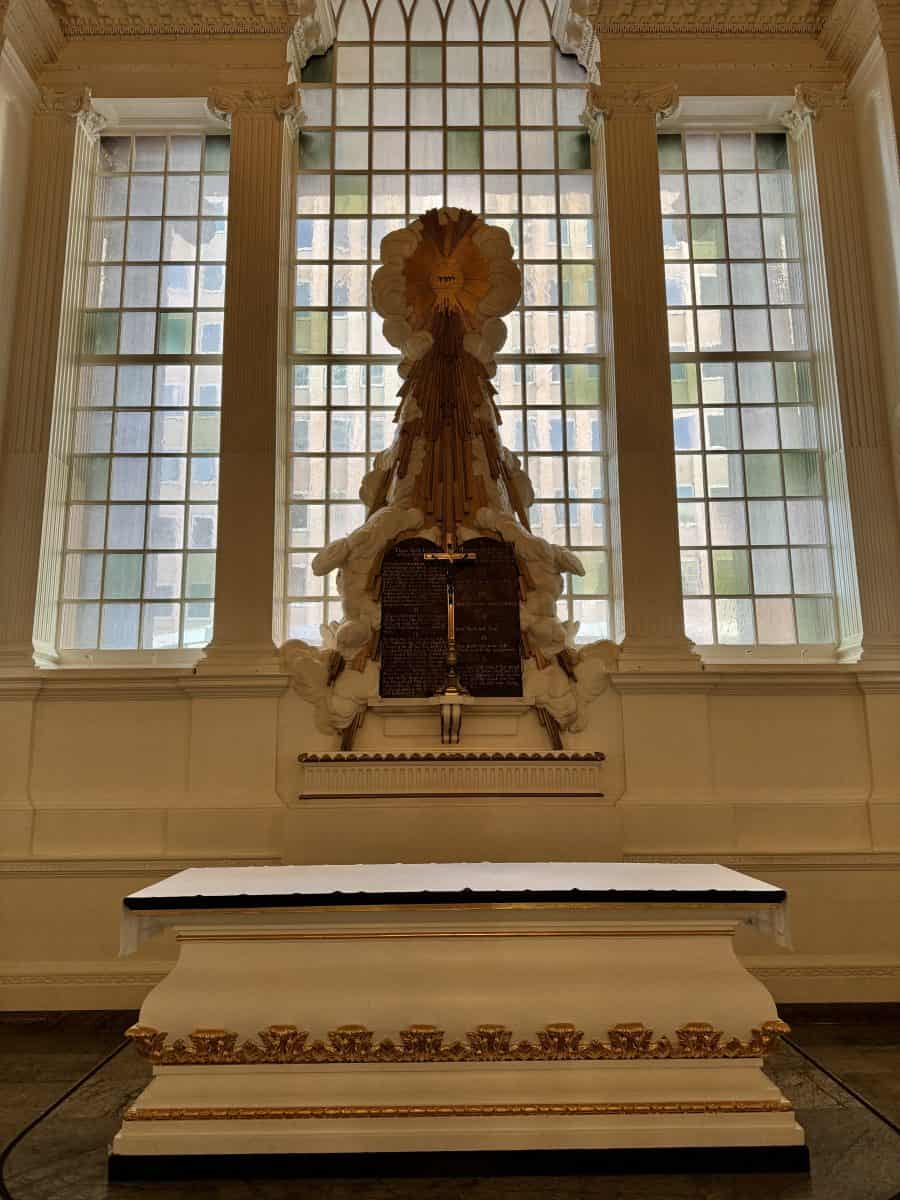
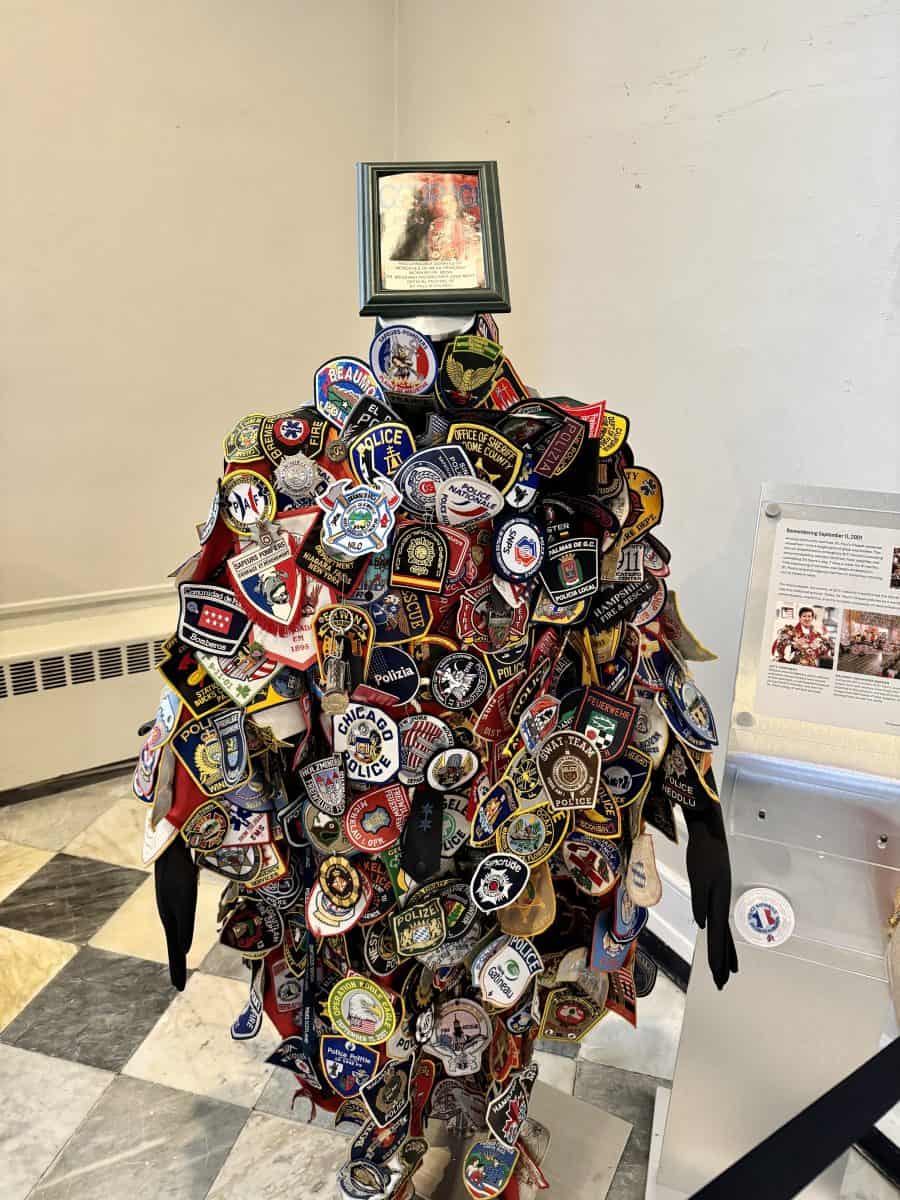


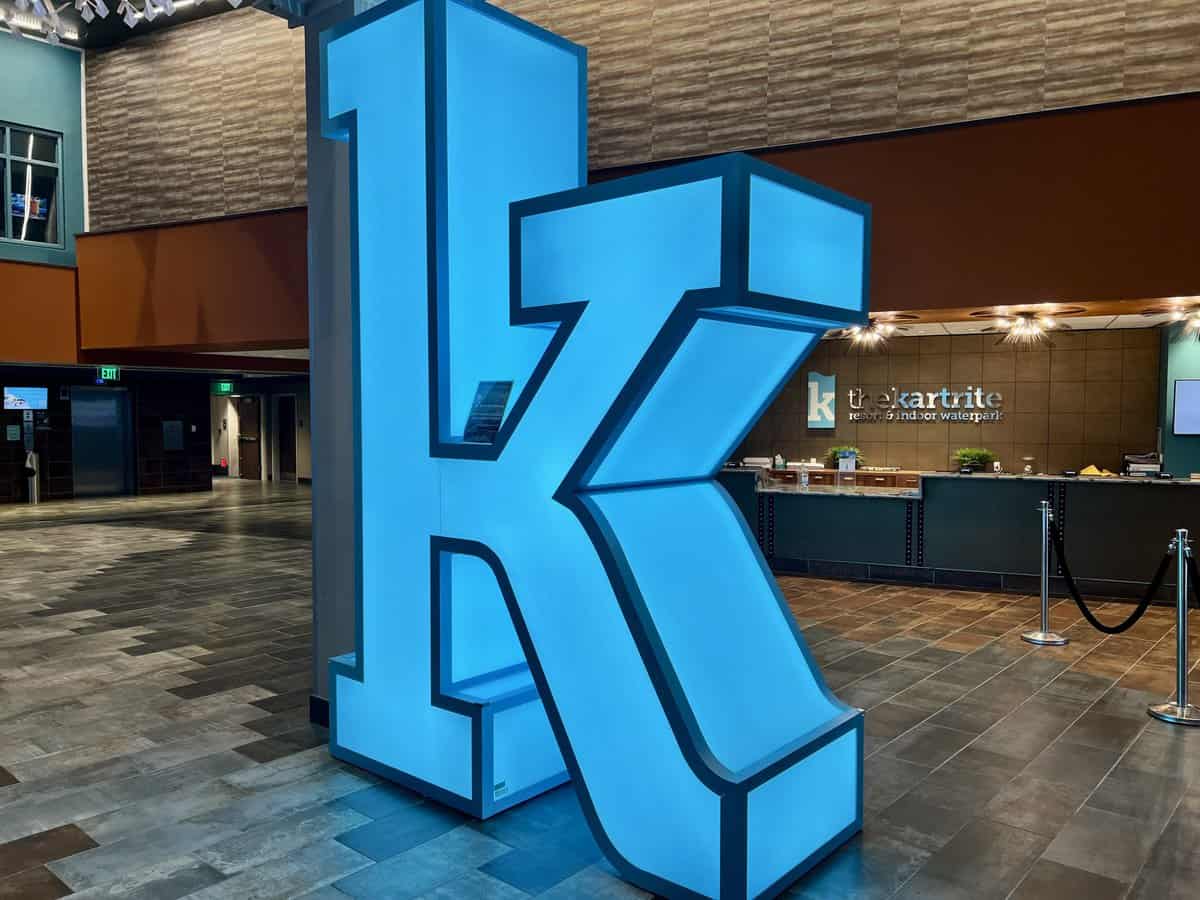

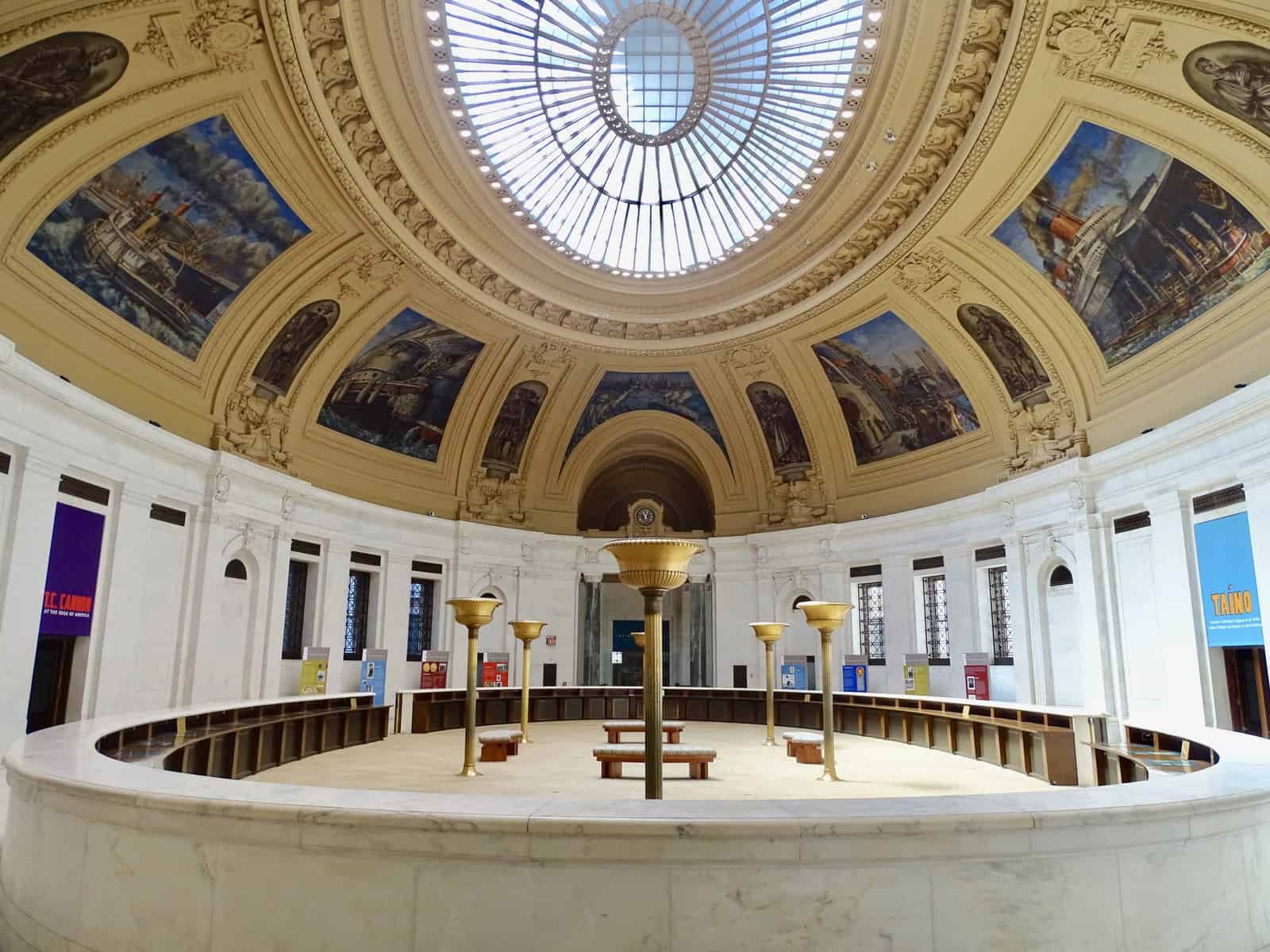

Such beautiful buildings! Both are my NYC bucket list.
this looks like a cool church. I would love to explore the South Side of the church yard.
I’ve seen St. Paul’s Chapel from the outside more times than I can count. It’s a beautiful building. With your post, I finally get to see the inside! I’ll have to stop in next time I am in NYC.
Such beautiful buildings to explore. I love the Bell of Hope.
Your post has a sense of calm and awe. I’ve never been to NYC, so I can only imagine the depth of feeling such a place has. Great descriptions.